Tag #developer
426 papers:
 ICSA-2019-TianLB #architecture #case study #how #smell #stack overflow
ICSA-2019-TianLB #architecture #case study #how #smell #stack overflow- How Developers Discuss Architecture Smells? An Exploratory Study on Stack Overflow (FT, PL0, MAB), pp. 91–100.
 ICPC-2019-GoncalesFSF
ICPC-2019-GoncalesFSF - Measuring the cognitive load of software developers: a systematic mapping study (LG, KF, BCdS, JF), pp. 42–52.
 ICPC-2019-Praza #workflow
ICPC-2019-Praza #workflow- The untapped potential of analyzing complete developer workflows (LP), p. 178.
 ICSME-2019-AlOmar #comprehension #refactoring #towards
ICSME-2019-AlOmar #comprehension #refactoring #towards- Towards Better Understanding Developer Perception of Refactoring (EAA), pp. 624–628.
 ICSME-2019-JinCX #api #question #what
ICSME-2019-JinCX #api #question #what- What Do Developers Discuss about Biometric APIs? (ZJ, KYC, XX0), pp. 348–352.
 MSR-2019-BangashSCWHA #case study #machine learning #ml #stack overflow #what
MSR-2019-BangashSCWHA #case study #machine learning #ml #stack overflow #what- What do developers know about machine learning: a study of ML discussions on StackOverflow (AAB, HS, SAC, AWW, AH, KA0), pp. 260–264.
 MSR-2019-ManesB #git #how #question #stack overflow #what
MSR-2019-ManesB #git #how #question #stack overflow #what- How often and what StackOverflow posts do developers reference in their GitHub projects? (SSM, OB), pp. 235–239.
 MSR-2019-WangPWZ #api
MSR-2019-WangPWZ #api- Extracting API tips from developer question and answer websites (SW0, NP, YW, YZ), pp. 321–332.
 SANER-2019-AshrafME #dependence #interactive #mining
SANER-2019-AshrafME #dependence #interactive #mining- Mining Cross-Task Artifact Dependencies from Developer Interactions (UA, CMD, AE), pp. 186–196.
 SANER-2019-GuoWWDYXZ #comprehension #mobile
SANER-2019-GuoWWDYXZ #comprehension #mobile- Systematic Comprehension for Developer Reply in Mobile System Forum (CG, WW, YW, ND, QY, JX0, SZ), pp. 242–252.
 SANER-2019-MeloCT #exception #guidelines #java
SANER-2019-MeloCT #exception #guidelines #java- Unveiling Exception Handling Guidelines Adopted by Java Developers (HM, RC, CT), pp. 128–139.
 SCAM-2019-AlizadehFK #less is more #multi #refactoring
SCAM-2019-AlizadehFK #less is more #multi #refactoring- Less is More: From Multi-objective to Mono-objective Refactoring via Developer's Knowledge Extraction (VA, HF, MK), pp. 181–192.
 SCAM-2019-GomesCS
SCAM-2019-GomesCS - No Accounting for Taste: Supporting Developers' Individual Choices of Coding Styles (IMMG, DC, MS), pp. 86–91.
 DiGRA-2019-WestecottSHR #game studies #research
DiGRA-2019-WestecottSHR #game studies #research- In Situ: Researching corporate diversity initiatives with game developers (EW, SS, CH, KR).
 FDG-2019-LuPN #analysis #communication #game studies
FDG-2019-LuPN #analysis #communication #game studies- Game postmortems vs. developer Reddit AMAs: computational analysis of developer communication (CL, JP, TN), p. 7.
 CIKM-2019-GongZ00XWH #community #detection #learning #online #using
CIKM-2019-GongZ00XWH #community #detection #learning #online #using- Detecting Malicious Accounts in Online Developer Communities Using Deep Learning (QG, JZ, YC0, QL0, YX, XW, PH), pp. 1251–1260.
 KDD-2019-Sundaresan #scalability
KDD-2019-Sundaresan #scalability- From Code to Data: AI at Scale for Developer Productivity (NS), p. 3175.
 ASE-2019-AmreenKM
ASE-2019-AmreenKM - Developer Reputation Estimator (DRE) (SA, AK, AM), pp. 1082–1085.
 ESEC-FSE-2019-BagherzadehK #big data #scalability #what
ESEC-FSE-2019-BagherzadehK #big data #scalability #what- Going big: a large-scale study on what big data developers ask (MB, RK), pp. 432–442.
 ESEC-FSE-2019-Cetin #graph #identification #traceability #using
ESEC-FSE-2019-Cetin #graph #identification #traceability #using- Identifying the most valuable developers using artifact traceability graphs (HAC), pp. 1196–1198.
 ESEC-FSE-2019-EckPCB #comprehension #perspective #testing
ESEC-FSE-2019-EckPCB #comprehension #perspective #testing- Understanding flaky tests: the developer's perspective (ME, FP, MC, AB), pp. 830–840.
 ESEC-FSE-2019-Marques #documentation #natural language
ESEC-FSE-2019-Marques #documentation #natural language- Helping developers search and locate task-relevant information in natural language documents (AM), pp. 1168–1171.
 ESEC-FSE-2019-SafwanS #commit #perspective
ESEC-FSE-2019-SafwanS #commit #perspective- Decomposing the rationale of code commits: the software developer's perspective (KAS, FS), pp. 397–408.
- ICSE-2019-AbidSDAM #behaviour #java #matter
- Developer reading behavior while summarizing Java methods: size and context matters (NJA, BS, ND, HA, JIM), pp. 384–395.
- ICSE-2019-Chattopadhyay0G #case study #how #process
- Latent patterns in activities: a field study of how developers manage context (SC, NN0, YRG, AAL, RP, AS), pp. 373–383.
- ICSE-2019-Eyolfson0 #c++ #empirical #how
- How C++ developers use immutability declarations: an empirical study (JE, PL0), pp. 362–372.
- ICSE-2019-Murphy-HillSSJW #question #tool support
- Do developers discover new tools on the toilet? (ERMH, EKS, CS, CJ, CW, MJ, AK, AT, SG), pp. 465–475.
 ICST-2019-BaloghHB #eclipse #fault #ide #interactive #java #locality #named
ICST-2019-BaloghHB #eclipse #fault #ide #interactive #java #locality #named- Poster: Aiding Java Developers with Interactive Fault Localization in Eclipse IDE (GB, FH, ÁB), pp. 371–374.
 ICSA-2018-SolimanSGZR #architecture #community #online
ICSA-2018-SolimanSGZR #architecture #community #online- Improving the Search for Architecture Knowledge in Online Developer Communities (MS, ARS, MG, OZ, MR), pp. 186–195.
 ICPC-2018-FakhouryMAA #readability #source code
ICPC-2018-FakhouryMAA #readability #source code- The effect of poor source code lexicon and readability on developers' cognitive load (SF, YM, VA, OOA), pp. 286–296.
 ICPC-2018-SalzaPNDLF #library #mobile #question
ICPC-2018-SalzaPNDLF #library #mobile #question- Do developers update third-party libraries in mobile apps? (PS, FP, DDN, CD, ADL, FF), pp. 255–265.
 ICPC-2018-TymchukGN #feedback #jit #static analysis #what
ICPC-2018-TymchukGN #feedback #jit #static analysis #what- JIT feedback: what experienced developers like about static analysis (YT, MG, ON), pp. 64–73.
 ICPC-2018-VassalloPZG
ICPC-2018-VassalloPZG - Un-break my build: assisting developers with build repair hints (CV, SP, TZ, HCG), pp. 41–51.
 ICPC-2018-VivianiJFXM #design #question #topic #what
ICPC-2018-VivianiJFXM #design #question #topic #what- What design topics do developers discuss? (GV, CJJ, MF, XX0, GCM), pp. 328–331.
 ICPC-2018-ZugerF
ICPC-2018-ZugerF - Sensing and supporting software developers' focus (MZ, TF0), pp. 2–6.
 ICSME-2018-FraczD #assessment #automation #case study #game studies
ICSME-2018-FraczD #assessment #automation #case study #game studies- Developers' Game: A Preliminary Study Concerning a Tool for Automated Developers Assessment (WF, JD), pp. 695–699.
 ICSME-2018-KrasniqiM #component #generative #speech
ICSME-2018-KrasniqiM #component #generative #speech- TraceLab Components for Generating Speech Act Types in Developer Question/Answer Conversations (RK, CM), p. 713.
 MSR-2018-AmlekarGGM #question
MSR-2018-AmlekarGGM #question- Do software engineers use autocompletion features differently than other developers? (RA, AFRG, KG, SM), pp. 86–89.
 MSR-2018-BellmanSB #analysis #debugging #ide #timeline #visual notation
MSR-2018-BellmanSB #analysis #debugging #ide #timeline #visual notation- Studying developer build issues and debugger usage via timeline analysis in visual studio IDE (CB, AS, OB), pp. 106–109.
 MSR-2018-BulmerMD #ide #machine learning #predict
MSR-2018-BulmerMD #ide #machine learning #predict- Predicting developers' IDE commands with machine learning (TB, LM, DED), pp. 82–85.
 MSR-2018-Cassee0CS #fault #how
MSR-2018-Cassee0CS #fault #how- How swift developers handle errors (NC, GP0, FC, AS), pp. 292–302.
 MSR-2018-CiborowskaKD #behaviour #detection #reuse #using #web
MSR-2018-CiborowskaKD #behaviour #detection #reuse #using #web- Detecting and characterizing developer behavior following opportunistic reuse of code snippets from the web (AC, NAK, KD), pp. 94–97.
 MSR-2018-ClaesMKF08 #automation #identification #open source #towards
MSR-2018-ClaesMKF08 #automation #identification #open source #towards- Towards automatically identifying paid open source developers (MC, MM, MK, UF), pp. 437–441.
 MSR-2018-CohenC08 #analysis #git #repository #scalability
MSR-2018-CohenC08 #analysis #git #repository #scalability- Large-scale analysis of the co-commit patterns of the active developers in github's top repositories (EC, MPC), pp. 426–436.
 MSR-2018-MiddletonMGMMWM08 #git #predict
MSR-2018-MiddletonMGMMWM08 #git #predict- Which contributions predict whether developers are accepted into github teams (JM, ERMH, DG, AWM, RM, DW, SM), pp. 403–413.
 MSR-2018-ProkschAN #dataset #empirical #process
MSR-2018-ProkschAN #dataset #empirical #process- Enriched event streams: a general dataset for empirical studies on in-IDE activities of software developers (SP, SA, SN), pp. 62–65.
 MSR-2018-RahmanBPKLQPSR08 #how #retrieval
MSR-2018-RahmanBPKLQPSR08 #how #retrieval- Evaluating how developers use general-purpose web-search for code retrieval (MMR, JB, SP, JK, FAL, SFQ, CP, KTS, BR), pp. 465–475.
 MSR-2018-RodriguezTK #empirical #performance
MSR-2018-RodriguezTK #empirical #performance- Empirical study on the relationship between developer's working habits and efficiency (AR, FT, YK), pp. 74–77.
 MSR-2018-WilkieHKLNRPK #ide #identification #using
MSR-2018-WilkieHKLNRPK #ide #identification #using- Who's this?: developer identification using IDE event data (JW, ZAH, AK, JL, GN, CR, MP, JK), pp. 90–93.
 MSR-2018-YamashitaPKG #ide #interactive
MSR-2018-YamashitaPKG #ide #interactive- Developer interaction traces backed by IDE screen recordings from think aloud sessions (AY, FP, FK, YGG), pp. 50–53.
 SANER-2018-AlkadhiNGB #how #question
SANER-2018-AlkadhiNGB #how #question- How do developers discuss rationale? (RA, MN, EG, BB), pp. 357–369.
 SANER-2018-BritoXHV #api #how #java #why
SANER-2018-BritoXHV #api #how #java #why- Why and how Java developers break APIs (AB, LX, ACH, MTV), pp. 255–265.
 SANER-2018-DigkasLACA #ecosystem #how #question #technical debt
SANER-2018-DigkasLACA #ecosystem #how #question #technical debt- How do developers fix issues and pay back technical debt in the Apache ecosystem? (GD, ML, PA, AC, AA), pp. 153–163.
 SANER-2018-LiSH
SANER-2018-LiSH - Which log level should developers choose for a new logging statement? (journal-first abstract) (HL0, WS, AEH), p. 468.
 SANER-2018-MontenegroMCB #exception #policy
SANER-2018-MontenegroMCB #exception #policy- Improving developers awareness of the exception handling policy (TM, HM, RC, EB), pp. 413–422.
 SANER-2018-VasquezVTP #android #how
SANER-2018-VasquezVTP #android #how- How developers micro-optimize Android apps (journal-first abstract) (MLV, CV, MT, DP), p. 470.
 SANER-2018-VassalloPPPZG #static analysis #tool support
SANER-2018-VassalloPPPZG #static analysis #tool support- Context is king: The developer perspective on the usage of static analysis tools (CV, SP, FP, SP, AZ, HCG), pp. 38–49.
 SCAM-2018-KiniT #fault #metric #predict #research
SCAM-2018-KiniT #fault #metric #predict #research- [Research Paper] Periodic Developer Metrics in Software Defect Prediction (SOK, AT), pp. 72–81.
 CIG-2018-MascarenhasGPDS #game studies #tool support
CIG-2018-MascarenhasGPDS #game studies #tool support- A Virtual Agent Toolkit for Serious Games Developers (SM, MG, RP, JD, PAS, KS, BH, ES, RK), pp. 1–7.
 MoDELS-2018-HenriquesLAG #experience #modelling #process
MoDELS-2018-HenriquesLAG #experience #modelling #process- Improving the Developer Experience with a Low-Code Process Modelling Language (HH, HL, VA, MG), pp. 200–210.
 ASE-2018-JanesMR #lens #named
ASE-2018-JanesMR #lens #named- code_call_lens: raising the developer awareness of critical code (AJ, MM, BR), pp. 876–879.
 ASE-2018-Ye0WW #crowdsourcing #personalisation #recommendation
ASE-2018-Ye0WW #crowdsourcing #personalisation #recommendation- Personalized teammate recommendation for crowdsourced software developers (LY, HS0, XW, JW), pp. 808–813.
 ESEC-FSE-2018-0002JCHZ #code review #overview #perspective
ESEC-FSE-2018-0002JCHZ #code review #overview #perspective- Salient-class location: help developers understand code change in code review (YH0, NJ, XC, KH, ZZ), pp. 770–774.
 ESEC-FSE-2018-BarikFMP #compilation #how #problem #question
ESEC-FSE-2018-BarikFMP #compilation #how #problem #question- How should compilers explain problems to developers? (TB, DF, ERMH, CP), pp. 633–643.
 ESEC-FSE-2018-Brindescu #how #process #tool support
ESEC-FSE-2018-Brindescu #how #process #tool support- How do developers resolve merge conflicts? an investigation into the processes, tools, and improvements (CB), pp. 952–955.
 ESEC-FSE-2018-IvanovPRSYZ #design #validation
ESEC-FSE-2018-IvanovPRSYZ #design #validation- Design and validation of precooked developer dashboards (VI0, VP, AR, GS, JY, VZ), pp. 821–826.
 ESEC-FSE-2018-WoodRAM #debugging #detection #speech
ESEC-FSE-2018-WoodRAM #debugging #detection #speech- Detecting speech act types in developer question/answer conversations during bug repair (AW, PR, AA, CM), pp. 491–502.
- ICSE-2018-BradleyFH
- Context-aware conversational developer assistants (NCB, TF0, RH), pp. 993–1003.
- ICSE-2018-DamevskiCSKP #behaviour #ide #modelling #predict #topic #using
- Predicting future developer behavior in the IDE using topic models (KD, HC, DCS, NAK, LLP), p. 932.
- ICSE-2018-HadarHATBSB #design #privacy
- Privacy by designers: software developers' privacy mindset (IH, TH, OA, ET, MB, SS, AB), p. 396.
- ICSE-2018-HassanTBH #game studies
- Studying the dialogue between users and developers of free apps in the google play store (SH, CT, CPB, AEH), p. 164.
- ICSE-2018-SawantADB #comprehension
- Understanding developers' needs on deprecation as a language feature (AAS, MFA, AvD, AB), pp. 561–571.
- ICSE-2018-SpadiniASBB #code review #how #overview #testing #why
- When testing meets code review: why and how developers review tests (DS, MFA, MADS, MB, AB), pp. 677–687.
 ICSA-2017-SolimanGR #architecture #community #ontology
ICSA-2017-SolimanGR #architecture #community #ontology- Developing an Ontology for Architecture Knowledge from Developer Communities (MS, MG, MR), pp. 89–92.
 ICPC-2017-AlmeidaMWH #open source #question
ICPC-2017-AlmeidaMWH #open source #question- Do software developers understand open source licenses? (DAA, GCM, GW, MH), pp. 1–11.
 ICPC-2017-CatolinoPLFZ #assessment #empirical #predict
ICPC-2017-CatolinoPLFZ #assessment #empirical #predict- Developer-related factors in change prediction: an empirical assessment (GC, FP, ADL, FF, AZ), pp. 186–195.
 ICPC-2017-HozanoGAFC #detection #exclamation #performance #smell
ICPC-2017-HozanoGAFC #detection #exclamation #performance #smell- Smells are sensitive to developers!: on the efficiency of (un)guided customized detection (MH, AG, NA, BF, EdBC), pp. 110–120.
 ICPC-2017-ZampettiPBMPL #documentation #how
ICPC-2017-ZampettiPBMPL #documentation #how- How developers document pull requests with external references (FZ, LP, GB, AM, MDP, ML), pp. 23–33.
 ICSME-2017-BlondeauEACCD #case study #scalability #testing #what
ICSME-2017-BlondeauEACCD #case study #scalability #testing #what- What are the Testing Habits of Developers? A Case Study in a Large IT Company (VB, AE, NA, SC, PC, SD), pp. 58–68.
 ICSME-2017-RobillardMTBCEG #documentation #on-demand
ICSME-2017-RobillardMTBCEG #documentation #on-demand- On-demand Developer Documentation (MPR, AM, CT, GB, OC, NAE, MAG, MWG, ML, MLV, GCM, LM, DCS, EW), pp. 479–483.
 ICSME-2017-Sae-LimHS #case study #how #smell
ICSME-2017-Sae-LimHS #case study #how #smell- How Do Developers Select and Prioritize Code Smells? A Preliminary Study (NSL, SH, MS), pp. 484–488.
 ICSME-2017-VasquezBMP #android #how #question
ICSME-2017-VasquezBMP #android #how #question- How do Developers Test Android Applications? (MLV, CBC, KM, DP), pp. 613–622.
 ICSME-2017-Wesel0RS
ICSME-2017-Wesel0RS - Reviewing Career Paths of the OpenStack Developers (PvW, BL0, GR, AS), pp. 544–548.
 MSR-2017-BaoXXLL #industrial #mining #scalability
MSR-2017-BaoXXLL #industrial #mining #scalability- Who will leave the company?: a large-scale industry study of developer turnover by mining monthly work report (LB, ZX, XX0, DL0, SL), pp. 170–181.
 MSR-2017-GuptaKGM #integration
MSR-2017-GuptaKGM #integration- The impact of the adoption of continuous integration on developer attraction and retention (YG, YK, KG, SM), pp. 491–494.
 MSR-2017-JhaLL #android #empirical #fault
MSR-2017-JhaLL #android #empirical #fault- Developer mistakes in writing Android manifests: an empirical study of configuration errors (AKJ, SL, WJL), pp. 25–36.
 MSR-2017-RahmanRK #code review #experience #overview #predict #using
MSR-2017-RahmanRK #code review #experience #overview #predict #using- Predicting usefulness of code review comments using textual features and developer experience (MMR0, CKR, RGK), pp. 215–226.
 SANER-2017-BladelMD #empirical #evolution
SANER-2017-BladelMD #empirical #evolution- An empirical study of clone density evolution and developer cloning tendency (BvB, AM, SD), pp. 551–552.
 SANER-2017-Ganea #dependence #evolution #named
SANER-2017-Ganea #dependence #evolution #named- Hindsight: Revealing the evolution of dependencies to developers (GG), pp. 511–515.
 SANER-2017-SharmaTSLY #learning #twitter
SANER-2017-SharmaTSLY #learning #twitter- Harnessing Twitter to support serendipitous learning of developers (AS0, YT0, AS, DL0, AFY), pp. 387–391.
 SANER-2017-XavierHV #api #why
SANER-2017-XavierHV #api #why- Why do we break APIs? First answers from developers (LX, ACH, MTV), pp. 392–396.
 SCAM-2017-SayaghDAA #empirical #framework #java #matter
SCAM-2017-SayaghDAA #empirical #framework #java #matter- Does the Choice of Configuration Framework Matter for Developers? Empirical Study on 11 Java Configuration Frameworks (MS, ZD0, AA0, BA), pp. 41–50.
 DiGRA-2017-ConsalvoP #game studies
DiGRA-2017-ConsalvoP #game studies- 'If you are feeling bold, ask for $3': Value Crafting and Indie Game Developers (MC, CAP).
 ASE-2017-KrugerNRAMBGGWD #encryption #named #using
ASE-2017-KrugerNRAMBGGWD #encryption #named #using- CogniCrypt: supporting developers in using cryptography (SK, SN, MR, KA0, MM, EB, FG, FG0, CW, DD, RK), pp. 931–936.
 ASE-2017-MirhosseiniP #automation #dependence #question
ASE-2017-MirhosseiniP #automation #dependence #question- Can automated pull requests encourage software developers to upgrade out-of-date dependencies? (SM, CP), pp. 84–94.
 ASE-2017-PaixaoKHRH #architecture #question
ASE-2017-PaixaoKHRH #architecture #question- Are developers aware of the architectural impact of their changes? (MP, JK, DH, CR, MH), pp. 95–105.
 ASE-2017-TomasdottirAD #how #javascript #why
ASE-2017-TomasdottirAD #how #javascript #why- Why and how JavaScript developers use linters (KFT, MFA, AvD), pp. 578–589.
 ASE-2017-WangSFY #crowdsourcing #recommendation
ASE-2017-WangSFY #crowdsourcing #recommendation- Recommending crowdsourced software developers in consideration of skill improvement (ZW, HS0, YF, LY), pp. 717–722.
 ASE-2017-XuXXL #automation #generative #named #summary
ASE-2017-XuXXL #automation #generative #named #summary- AnswerBot: automated generation of answer summary to developersź technical questions (BX, ZX, XX0, DL0), pp. 706–716.
 ESEC-FSE-2017-Abdalkareem #perspective #using
ESEC-FSE-2017-Abdalkareem #perspective #using- Reasons and drawbacks of using trivial npm packages: the developers' perspective (RA), pp. 1062–1064.
 ESEC-FSE-2017-AbdalkareemNWMS #case study #empirical #why
ESEC-FSE-2017-AbdalkareemNWMS #case study #empirical #why- Why do developers use trivial packages? an empirical case study on npm (RA, ON, SW, SM, ES), pp. 385–395.
- ICSE-2017-BarikSLHFMP #compilation #error message #fault #question
- Do developers read compiler error messages? (TB, JS0, KL, EH, JF, ERMH, CP), pp. 575–585.
- ICSE-2017-JoblinAHM #empirical #metric #network
- Classifying developers into core and peripheral: an empirical study on count and network metrics (MJ, SA, CH, WM), pp. 164–174.
- ICSE-2017-MaCZZX #case study #correlation #debugging #ecosystem #git #how #python
- How do developers fix cross-project correlated bugs?: a case study on the GitHub scientific python ecosystem (WM, LC0, XZ0, YZ, BX), pp. 381–392.
- ICSE-2017-PonzanelliSBMOP #recommendation
- Supporting software developers with a holistic recommender system (LP, SS, GB, AM, RO, MDP, ML), pp. 94–105.
- ICSE-2017-RodegheroJAM #detection #summary
- Detecting user story information in developer-client conversations to generate extractive summaries (PR, SJ, AA, CM), pp. 49–59.
 ECSA-2016-RostN #architecture #documentation #effectiveness #why
ECSA-2016-RostN #architecture #documentation #effectiveness #why- Task-Specific Architecture Documentation for Developers - Why Separation of Concerns in Architecture Documentation is Counterproductive for Developers (DR, MN), pp. 102–110.
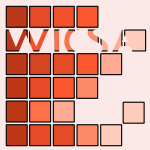 WICSA-2016-SolimanGSR #architecture #case study #community #stack overflow
WICSA-2016-SolimanGSR #architecture #case study #community #stack overflow- Architectural Knowledge for Technology Decisions in Developer Communities: An Exploratory Study with StackOverflow (MS, MG, ARS, MR), pp. 128–133.
 ICSME-2016-LevinY #maintenance #predict #process #semantics #using
ICSME-2016-LevinY #maintenance #predict #process #semantics #using- Using Temporal and Semantic Developer-Level Information to Predict Maintenance Activity Profiles (SL, AY), pp. 463–467.
 MSR-2016-AhmadKSA #android #challenge #communication
MSR-2016-AhmadKSA #android #challenge #communication- Inter-app communication in Android: developer challenges (WA, CK, JS, JA), pp. 177–188.
 MSR-2016-AsaduzzamanARS #exception #how #java #question
MSR-2016-AsaduzzamanARS #exception #how #java #question- How developers use exception handling in Java? (MA, MA, CKR, KAS), pp. 516–519.
 MSR-2016-BaoLXWT #android #commit #empirical #how #mining #power management
MSR-2016-BaoLXWT #android #commit #empirical #how #mining #power management- How android app developers manage power consumption?: an empirical study by mining power management commits (LB, DL0, XX0, XW0, CT), pp. 37–48.
 MSR-2016-DamevskiCSP #interactive #markov #using
MSR-2016-DamevskiCSP #interactive #markov #using- Interactive exploration of developer interaction traces using a hidden markov model (KD, HC0, DCS, LLP), pp. 126–136.
 MSR-2016-OrtuMDTTMA
MSR-2016-OrtuMDTTMA - The emotional side of software developers in JIRA (MO, AM, GD, PT, RT, MM, BA), pp. 480–483.
 MSR-2016-SinhaLS #commit #sentiment
MSR-2016-SinhaLS #commit #sentiment- Analyzing developer sentiment in commit logs (VS, AL, BS), pp. 520–523.
 MSR-2016-ThompsonMPG #how #repository
MSR-2016-ThompsonMPG #how #repository- How software developers use work breakdown relationships in issue repositories (CAT, GCM, MP, MG), pp. 281–285.
 SANER-2016-BritoHVR #analysis #api #java #scalability
SANER-2016-BritoHVR #analysis #api #java #scalability- Do Developers Deprecate APIs with Replacement Messages? A Large-Scale Analysis on Java Systems (GB, ACH, MTV, RR), pp. 360–369.
 SANER-2016-ChowdhurySH #energy #mobile #performance #web
SANER-2016-ChowdhurySH #energy #mobile #performance #web- Client-Side Energy Efficiency of HTTP/2 for Web and Mobile App Developers (SAC, VS, AH), pp. 529–540.
 SANER-2016-KinaTHTI
SANER-2016-KinaTHTI - Analyzing the Decision Criteria of Software Developers Based on Prospect Theory (KK, MT, HH, HT, HI), pp. 644–648.
 SANER-2016-NayebiAR #mobile #question #what
SANER-2016-NayebiAR #mobile #question #what- Release Practices for Mobile Apps - What do Users and Developers Think? (MN, BA, GR), pp. 552–562.
 SANER-2016-RastogiN #community #empirical
SANER-2016-RastogiN #community #empirical- Forking and the Sustainability of the Developer Community Participation - An Empirical Investigation on Outcomes and Reasons (AR, NN), pp. 102–111.
 DiGRA-FDG-2016-JordanBSR #game studies
DiGRA-FDG-2016-JordanBSR #game studies- Selling out the magic circle: free-toplay games and developer ethics (PJ, WB, PAS, HR).
 PLATEAU-2016-RamosVTS #overview
PLATEAU-2016-RamosVTS #overview- AngularJS in the wild: a survey with 460 developers (MR, MTV, RT, GS), pp. 9–16.
 ASE-2016-ChristakisB #empirical #program analysis #what
ASE-2016-ChristakisB #empirical #program analysis #what- What developers want and need from program analysis: an empirical study (MC, CB), pp. 332–343.
 ASE-2016-Cito #development #runtime
ASE-2016-Cito #development #runtime- Developer targeted analytics: supporting software development decisions with runtime information (JC), pp. 892–895.
 ASE-2016-DemuthRE #consistency #detection #multi #nondeterminism #performance
ASE-2016-DemuthRE #consistency #detection #multi #nondeterminism #performance- Efficient detection of inconsistencies in a multi-developer engineering environment (AD, MRE, AE), pp. 590–601.
 ASE-2016-Greene0 #identification #mining #named #open source
ASE-2016-Greene0 #identification #mining #named #open source- CVExplorer: identifying candidate developers by mining and exploring their open source contributions (GJG, BF), pp. 804–809.
 ASE-2016-XuYXXCL #network #online #predict #semantics
ASE-2016-XuYXXCL #network #online #predict #semantics- Predicting semantically linkable knowledge in developer online forums via convolutional neural network (BX, DY, ZX, XX, GC, SL), pp. 51–62.
 FSE-2016-Barik #how #question #static analysis #tool support
FSE-2016-Barik #how #question #static analysis #tool support- How should static analysis tools explain anomalies to developers? (TB), pp. 1118–1120.
 FSE-2016-ChenSHNF #framework #named #web
FSE-2016-ChenSHNF #framework #named #web- CacheOptimizer: helping developers configure caching frameworks for hibernate-based database-centric web applications (THC, WS, AEH, MNN, PF), pp. 666–677.
 FSE-2016-CostaFSM #branch #named #recommendation
FSE-2016-CostaFSM #branch #named #recommendation- TIPMerge: recommending developers for merging branches (CC, JF, AS, LM), pp. 998–1002.
 FSE-2016-Head #health #open source #social
FSE-2016-Head #health #open source #social- Social health cues developers use when choosing open source packages (AH), pp. 1133–1135.
 FSE-2016-PiorkowskiHNFSB #predict
FSE-2016-PiorkowskiHNFSB #predict- Foraging and navigations, fundamentally: developers' predictions of value and cost (DP, AZH, TN, SDF, CS, MMB), pp. 97–108.
 FSE-2016-Sadowski #workflow
FSE-2016-Sadowski #workflow- Developer workflow at google (showcase) (CS), p. 26.
 FSE-2016-SharifCM #re-engineering #research
FSE-2016-SharifCM #re-engineering #research- Studying developer gaze to empower software engineering research and practice (BS, BC, JIM), pp. 940–943.
 FSE-2016-StoreyZ
FSE-2016-StoreyZ - Disrupting developer productivity one bot at a time (MADS, AZ), pp. 928–931.
 FSE-2016-Zanjani #effectiveness
FSE-2016-Zanjani #effectiveness- Effective assignment and assistance to software developers and reviewers (MBZ), pp. 1091–1093.
 FSE-2016-ZhangJKKGH #recommendation
FSE-2016-ZhangJKKGH #recommendation- Bing developer assistant: improving developer productivity by recommending sample code (HZ0, AJ, GK, CK, SG, WH), pp. 956–961.
- ICSE-2016-KononenkoBG #code review #how #overview #quality
- Code review quality: how developers see it (OK, OB, MWG), pp. 1028–1038.
- ICSE-2016-NadiKMB #api #encryption #java #question #why
- Jumping through hoops: why do Java developers struggle with cryptography APIs? (SN, SK, MM, EB), pp. 935–946.
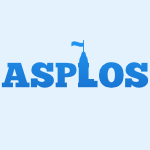 ASPLOS-2016-LiaqatJLGTLGS #architecture #energy #mobile #named #performance
ASPLOS-2016-LiaqatJLGTLGS #architecture #energy #mobile #named #performance- Sidewinder: An Energy Efficient and Developer Friendly Heterogeneous Architecture for Continuous Mobile Sensing (DL, SJ, EdL, AG, WT, KL, IDMG, MS), pp. 205–215.
 ICPC-2015-MacLeodSB #documentation #how #using
ICPC-2015-MacLeodSB #documentation #how #using- Code, camera, action: how software developers document and share program knowledge using YouTube (LM, MAS, AB), pp. 104–114.
 ICPC-2015-MinelliML #how #what
ICPC-2015-MinelliML #how #what- I know what you did last summer: an investigation of how developers spend their time (RM, AM, ML), pp. 25–35.
 ICPC-2015-Roehm #comprehension
ICPC-2015-Roehm #comprehension- Two user perspectives in program comprehension: end users and developer users (TR), pp. 129–139.
 ICSME-2015-BaloghABVGV #identification #interactive
ICSME-2015-BaloghABVGV #identification #interactive- Identifying wasted effort in the field via developer interaction data (GB, GA, ÁB, LV, TG, AZV), pp. 391–400.
 ICSME-2015-CodobanRDB #case study #how #lens #why
ICSME-2015-CodobanRDB #case study #how #lens #why- Software history under the lens: A study on why and how developers examine it (MC, SSR, DD, BB), pp. 1–10.
 ICSME-2015-CorleyLQ #web
ICSME-2015-CorleyLQ #web- Web usage patterns of developers (CSC, FL, SQ), pp. 381–390.
 ICSME-2015-HoraRAEDV #api #ecosystem #evolution #how #smalltalk
ICSME-2015-HoraRAEDV #api #ecosystem #evolution #how #smalltalk- How do developers react to API evolution? The Pharo ecosystem case (AH, RR, NA, AE, SD, MTV), pp. 251–260.
 ICSME-2015-LimaTFK #metric #repository
ICSME-2015-LimaTFK #metric #repository- Assessing developer contribution with repository mining-based metrics (JL, CT, FMFF, UK), pp. 536–540.
 ICSME-2015-NucciPSBOL #debugging #on the #predict
ICSME-2015-NucciPSBOL #debugging #on the #predict- On the role of developer’s scattered changes in bug prediction (DDN, FP, SS, GB, RO, ADL), pp. 241–250.
 ICSME-2015-OliveiraVBS #metric #validation
ICSME-2015-OliveiraVBS #metric #validation- Validating metric thresholds with developers: An early result (PO, MTV, AB, AS), pp. 546–550.
 ICSME-2015-PiorkowskiFSBKH #bias #debugging #how #information management
ICSME-2015-PiorkowskiFSBKH #bias #debugging #how #information management- To fix or to learn? How production bias affects developers’ information foraging during debugging (DP, SDF, CS, MMB, IK, AZH, JM, CH, AH), pp. 11–20.
 ICSME-2015-SilvaVMA #co-evolution #empirical
ICSME-2015-SilvaVMA #co-evolution #empirical- Developers’ perception of co-change patterns: An empirical study (LLS, MTV, MdAM, NA), pp. 21–30.
 ICSME-2015-VasquezVLP #android #detection #how #performance
ICSME-2015-VasquezVLP #android #detection #how #performance- How developers detect and fix performance bottlenecks in Android apps (MLV, CV, QL, DP), pp. 352–361.
 ICSME-2015-VendomeVBPGP #why
ICSME-2015-VendomeVBPGP #why- When and why developers adopt and change software licenses (CV, MLV, GB, MDP, DMG, DP), pp. 31–40.
 MSR-2015-HauffG #git
MSR-2015-HauffG #git- Matching GitHub Developer Profiles to Job Advertisements (CH, GG), pp. 362–366.
 MSR-2015-MauczkaBSG #commit #dataset
MSR-2015-MauczkaBSG #commit #dataset- Dataset of Developer-Labeled Commit Messages (AM, FB, CS, TG), pp. 490–493.
 MSR-2015-WangMG #api #recommendation
MSR-2015-WangMG #api #recommendation- Recommending Posts concerning API Issues in Developer Q&A Sites (WW, HM, MWG), pp. 224–234.
 MSR-2015-ZanjaniKB #using
MSR-2015-ZanjaniKB #using- Using Developer-Interaction Trails to Triage Change Requests (MBZ, HHK, CB), pp. 88–98.
 MSR-2015-ZouXGYYZ #analysis #empirical #non-functional #requirements #stack overflow #topic #using
MSR-2015-ZouXGYYZ #analysis #empirical #non-functional #requirements #stack overflow #topic #using- Which Non-functional Requirements Do Developers Focus On? An Empirical Study on Stack Overflow Using Topic Analysis (JZ, LX, WG, MY, DY, XZ), pp. 446–449.
 SANER-2015-DamevskiSP #code search #evaluation #metric #scalability #tool support
SANER-2015-DamevskiSP #code search #evaluation #metric #scalability #tool support- Scaling up evaluation of code search tools through developer usage metrics (KD, DCS, LLP), pp. 181–190.
 SANER-2015-JiangSPLZ #comprehension #interactive #natural language #query
SANER-2015-JiangSPLZ #comprehension #interactive #natural language #query- Understanding developers’ natural language queries with interactive clarification (SJ, LS, XP, ZL, WZ), pp. 13–22.
 SANER-2015-PanichellaAPA #code review #question #static analysis #tool support
SANER-2015-PanichellaAPA #code review #question #static analysis #tool support- Would static analysis tools help developers with code reviews? (SP, VA, MDP, GA), pp. 161–170.
 CHI-PLAY-2015-MaDP
CHI-PLAY-2015-MaDP - Collaborate, Not Only as a Developer, but also as a PLAYER (JM, PJD, JP), pp. 625–630.
 FDG-2015-JanssenRMB #framework #game studies
FDG-2015-JanssenRMB #framework #game studies- Sensors at Play: A biometric framework for game developers and game users (DPJ, LGR, MAGM, GB).
 CHI-2015-ZugerF #predict #using
CHI-2015-ZugerF #predict #using- Interruptibility of Software Developers and its Prediction Using Psycho-Physiological Sensors (MZ, TF), pp. 2981–2990.
 CSCW-2015-GuzziBRD #coordination #ide
CSCW-2015-GuzziBRD #coordination #ide- Supporting Developers’ Coordination in the IDE (AG, AB, YR, AvD), pp. 518–532.
 HCI-DE-2015-BakkeB #learning #proximity
HCI-DE-2015-BakkeB #learning #proximity- The Closer the Better: Effects of Developer-User Proximity for Mutual Learning (SB, TB), pp. 14–26.
 SEKE-2015-AndoSUWFIOHKSNY #development #experience #fault #how #process #question
SEKE-2015-AndoSUWFIOHKSNY #development #experience #fault #how #process #question- How Does Defect Removal Activity of Developer Vary with Development Experience? (RA, SS, CU, HW, YF, SI, HO, YH, MK, KS, KN, MY), pp. 540–545.
 SEKE-2015-TangariM #perspective
SEKE-2015-TangariM #perspective- Developers’ importance from the leader perspective (GT, MM), pp. 379–384.
 SEKE-2015-WuCZX #c++ #empirical #how #library
SEKE-2015-WuCZX #c++ #empirical #how #library- How do developers use C++ libraries? An empirical study (DW, LC, YZ, BX), pp. 260–265.
 SEKE-2015-ZhaoSCZ #crowdsourcing #effectiveness #recommendation #towards
SEKE-2015-ZhaoSCZ #crowdsourcing #effectiveness #recommendation #towards- Towards Effective Developer Recommendation in Software Crowdsourcing (SZ, BS, YC, HZ), pp. 326–329.
 Onward-2015-CitoLGDKR #feedback #metric #runtime #using
Onward-2015-CitoLGDKR #feedback #metric #runtime #using- Runtime metric meets developer: building better cloud applications using feedback (JC, PL, HCG, AD, AK, AR), pp. 14–27.
 PLATEAU-2015-KabacVC #evaluation #learning #tool support #usability
PLATEAU-2015-KabacVC #evaluation #learning #tool support #usability- An evaluation of the DiaSuite toolset by professional developers: learning cost and usability (MK, NV, CC), pp. 9–16.
 ASE-2015-BaoXWZ #process
ASE-2015-BaoXWZ #process- Tracking and Analyzing Cross-Cutting Activities in Developers’ Daily Work (N) (LB, ZX, XW, BZ), pp. 277–282.
 ASE-2015-SorboPVPCG #development #email #mining
ASE-2015-SorboPVPCG #development #email #mining- Development Emails Content Analyzer: Intention Mining in Developer Discussions (T) (ADS, SP, CAV, MDP, GC, HCG), pp. 12–23.
 ASE-2015-VasquezLVP #database #documentation #how #source code
ASE-2015-VasquezLVP #database #documentation #how #source code- How do Developers Document Database Usages in Source Code? (N) (MLV, BL, CV, DP), pp. 36–41.
 ESEC-FSE-2015-BellerGPZ #how #ide #why
ESEC-FSE-2015-BellerGPZ #how #ide #why- When, how, and why developers (do not) test in their IDEs (MB, GG, AP, AZ), pp. 179–190.
 ESEC-FSE-2015-CasalnuovoVDF #experience #git #social
ESEC-FSE-2015-CasalnuovoVDF #experience #git #social- Developer onboarding in GitHub: the role of prior social links and language experience (CC, BV, PTD, VF), pp. 817–828.
 ESEC-FSE-2015-FoucaultPBMF #open source #quality
ESEC-FSE-2015-FoucaultPBMF #open source #quality- Impact of developer turnover on quality in open-source software (MF, MP, XB, GCM, JRF), pp. 829–841.
 ESEC-FSE-2015-JohnsonPMH #adaptation #concept #tool support
ESEC-FSE-2015-JohnsonPMH #adaptation #concept #tool support- Bespoke tools: adapted to the concepts developers know (BJ, RP, ERMH, SH), pp. 878–881.
 ESEC-FSE-2015-KevicWSSSF #interactive
ESEC-FSE-2015-KevicWSSSF #interactive- Tracing software developers’ eyes and interactions for change tasks (KK, BMW, TRS, BS, DCS, TF), pp. 202–213.
 ESEC-FSE-2015-NorthBSC #named #using
ESEC-FSE-2015-NorthBSC #named #using- GitSonifier: using sound to portray developer conflict history (KJN, SB, AS, MBC), pp. 886–889.
 ESEC-FSE-2015-PhamSS #automation #recommendation
ESEC-FSE-2015-PhamSS #automation #recommendation- Automatically recommending test code examples to inexperienced developers (RP, YS, KS), pp. 890–893.
 ESEC-FSE-2015-SadowskiSE #case study #how
ESEC-FSE-2015-SadowskiSE #case study #how- How developers search for code: a case study (CS, KTS, SGE), pp. 191–201.
 ESEC-FSE-2015-SaraivaBZ #how #n-gram
ESEC-FSE-2015-SaraivaBZ #how #n-gram- Products, developers, and milestones: how should I build my N-Gram language model (JS, CB, TZ), pp. 998–1001.
 ESEC-FSE-2015-SmithJMCL #security #static analysis
ESEC-FSE-2015-SmithJMCL #security #static analysis- Questions developers ask while diagnosing potential security vulnerabilities with static analysis (JS, BJ, ERMH, BC, HRL), pp. 248–259.
 ESEC-FSE-2015-WitscheyZWMMZ #security #tool support
ESEC-FSE-2015-WitscheyZWMMZ #security #tool support- Quantifying developers’ adoption of security tools (JW, OZ, AKW, ERMH, CBM, TZ), pp. 260–271.
 ICSE-v1-2015-AvgustinovBHLMM #static analysis
ICSE-v1-2015-AvgustinovBHLMM #static analysis- Tracking Static Analysis Violations over Time to Capture Developer Characteristics (PA, AIB, ASH, RGL, GM, OdM, MS, JT), pp. 437–447.
 ICSE-v1-2015-BarnettBBL #automation #code review #composition #overview
ICSE-v1-2015-BarnettBBL #automation #code review #composition #overview- Helping Developers Help Themselves: Automatic Decomposition of Code Review Changesets (MB, CB, JB, SKL), pp. 134–144.
 ICSE-v1-2015-GuiMNH #mobile
ICSE-v1-2015-GuiMNH #mobile- Truth in Advertising: The Hidden Cost of Mobile Ads for Software Developers (JG, SM, MN, WGJH), pp. 100–110.
 ICSE-v1-2015-JoblinMASR #approach #community #fine-grained #network
ICSE-v1-2015-JoblinMASR #approach #community #fine-grained #network- From Developer Networks to Verified Communities: A Fine-Grained Approach (MJ, WM, SA, JS, DR), pp. 563–573.
 ICSE-v1-2015-LavalleeR #case study #quality #why
ICSE-v1-2015-LavalleeR #case study #quality #why- Why Good Developers Write Bad Code: An Observational Case Study of the Impacts of Organizational Factors on Software Quality (ML, PNR), pp. 677–687.
 ICSE-v1-2015-MullerF
ICSE-v1-2015-MullerF - Stuck and Frustrated or in Flow and Happy: Sensing Developers’ Emotions and Progress (SCM, TF), pp. 688–699.
 ICSE-v1-2015-ZhuHFZLZ #learning
ICSE-v1-2015-ZhuHFZLZ #learning- Learning to Log: Helping Developers Make Informed Logging Decisions (JZ, PH, QF, HZ, MRL, DZ), pp. 415–425.
 ICSE-v2-2015-BaoLXWZ #behaviour #interactive #modelling #named #using #video
ICSE-v2-2015-BaoLXWZ #behaviour #interactive #modelling #named #using #video- scvRipper: Video Scraping Tool for Modeling Developers’ Behavior Using Interaction Data (LB, JL, ZX, XW, BZ), pp. 673–676.
 ICSE-v2-2015-BellerGZ #how #question
ICSE-v2-2015-BellerGZ #how #question- How (Much) Do Developers Test? (MB, GG, AZ), pp. 559–562.
 ICSE-v2-2015-Beyer #api #mobile #named #recommendation
ICSE-v2-2015-Beyer #api #mobile #named #recommendation- DIETs: Recommender Systems for Mobile API Developers (SB), pp. 859–862.
 ICSE-v2-2015-MinelliML
ICSE-v2-2015-MinelliML - Free Hugs — Praising Developers for Their Actions (RM, AM, ML), pp. 555–558.
 ICSE-v2-2015-Muller
ICSE-v2-2015-Muller - Measuring Software Developers’ Perceived Difficulty with Biometric Sensors (SCM), pp. 887–890.
 ICSE-v2-2015-Squire #social #social media #stack overflow
ICSE-v2-2015-Squire #social #social media #stack overflow- “Should We Move to Stack Overflow?” Measuring the Utility of Social Media for Developer Support (MS), pp. 219–228.
 SAC-2015-HozanoFSFC #detection #feedback #smell #using
SAC-2015-HozanoFSFC #detection #feedback #smell #using- Using developers’ feedback to improve code smell detection (MH, HF, ICLS, BF, EC), pp. 1661–1663.
 SAC-2015-JuniorSPM
SAC-2015-JuniorSPM - Developers assignment for analyzing pull requests (MLdLJ, DMS, AP, LM), pp. 1567–1572.
 SAC-2015-PalviainenKKLMN #collaboration #design #experience #framework
SAC-2015-PalviainenKKLMN #collaboration #design #experience #framework- Design framework enhancing developer experience in collaborative coding environment (JP, TK, JK, JL, TM, AN), pp. 149–156.
 ICST-2015-KochharTNZL #automation #comprehension #testing
ICST-2015-KochharTNZL #automation #comprehension #testing- Understanding the Test Automation Culture of App Developers (PSK, FT, NN, TZ, DL), pp. 1–10.
 CSMR-WCRE-2014-EspinhaZG #api #web
CSMR-WCRE-2014-EspinhaZG #api #web- Web API growing pains: Stories from client developers and their code (TE, AZ, HGG), pp. 84–93.
 CSMR-WCRE-2014-Heing-BeckerKS #injection
CSMR-WCRE-2014-Heing-BeckerKS #injection- Bit-error injection for software developers (MHB, TK, SS), pp. 434–439.
 ICPC-2014-VassalloPPC #mining #named #source code
ICPC-2014-VassalloPPC #mining #named #source code- CODES: mining source code descriptions from developers discussions (CV, SP, MDP, GC), pp. 106–109.
 ICPC-2014-WaltersSSK #traceability
ICPC-2014-WaltersSSK #traceability- Capturing software traceability links from developers’ eye gazes (BW, TS, BS, HHK), pp. 201–204.
 ICSME-2014-Bettenburg #communication #evolution #quality
ICSME-2014-Bettenburg #communication #evolution #quality- Studying the Impact of Developer Communication on the Quality and Evolution of a Software System: A Doctoral Dissertation Retrospective (NB), pp. 651–656.
 ICSME-2014-BhattacharyaNF #approach #graph
ICSME-2014-BhattacharyaNF #approach #graph- Determining Developers’ Expertise and Role: A Graph Hierarchy-Based Approach (PB, IN, MF), pp. 11–20.
 ICSME-2014-PalombaBPOL #case study #smell
ICSME-2014-PalombaBPOL #case study #smell- Do They Really Smell Bad? A Study on Developers’ Perception of Bad Code Smells (FP, GB, MDP, RO, ADL), pp. 101–110.
 ICSME-2014-PanichellaBPCA #how
ICSME-2014-PanichellaBPCA #how- How Developers’ Collaborations Identified from Different Sources Tell Us about Code Changes (SP, GB, MDP, GC, GA), pp. 251–260.
 MSR-2014-BajajPM #mining #web
MSR-2014-BajajPM #mining #web- Mining questions asked by web developers (KB, KP, AM), pp. 112–121.
 MSR-2014-BrunetMTFG #design #question
MSR-2014-BrunetMTFG #design #question- Do developers discuss design? (JB, GCM, RT, JCAdF, DSG), pp. 340–343.
 MSR-2014-MurgiaTAO #analysis
MSR-2014-MurgiaTAO #analysis- Do developers feel emotions? an exploratory analysis of emotions in software artifacts (AM, PT, BA, MO), pp. 262–271.
 SCAM-2014-BazrafshanK #debugging #performance
SCAM-2014-BazrafshanK #debugging #performance- Effect of Clone Information on the Performance of Developers Fixing Cloned Bugs (SB, RK), pp. 1–10.
 FDG-2014-TaylorP #game studies #women
FDG-2014-TaylorP #game studies #women- Aussie women game developers (DMT, YP).
 VS-Games-2014-ChaudyCH #education #game studies #named
VS-Games-2014-ChaudyCH #education #game studies #named- EngAGe: A Link between Educational Games Developers and Educators (YC, TMC, TH), pp. 1–7.
 CHI-2014-TanNTNTEW #behaviour #smarttech
CHI-2014-TanNTNTEW #behaviour #smarttech- The effect of developer-specified explanations for permission requests on smartphone user behavior (JT, KN, MT, HNA, CT, SE, DW), pp. 91–100.
 HCI-TMT-2014-LizanoS #comprehension #towards #usability
HCI-TMT-2014-LizanoS #comprehension #towards #usability- Improvement of Novice Software Developers’ Understanding about Usability: The Role of Empathy Toward Users as a Case of Emotional Contagion (FL, JS), pp. 207–218.
 SCSM-2014-MeloHSBGB #gamification #version control
SCSM-2014-MeloHSBGB #gamification #version control- Version Control System Gamification: A Proposal to Encourage the Engagement of Developers to Collaborate in Software Projects (AAdM, MH, GS, CDMB, IG, FB), pp. 550–558.
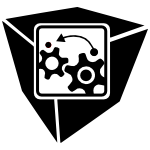 VISSOFT-2014-BarikLCM #approach #compilation #how #visualisation
VISSOFT-2014-BarikLCM #approach #compilation #how #visualisation- How Developers Visualize Compiler Messages: A Foundational Approach to Notification Construction (TB, KL, SC, ERMH), pp. 87–96.
 VISSOFT-2014-MinelliMLB #interactive #visualisation
VISSOFT-2014-MinelliMLB #interactive #visualisation- Visualizing Developer Interactions (RM, AM, ML, LB), pp. 147–156.
 SEKE-2014-HegdeW #how #overview #perspective
SEKE-2014-HegdeW #how #overview #perspective- How to Enhance the Creativity of Software Developers: A Systematic Literature Review (RH, GSW), pp. 229–234.
 OOPSLA-2014-BrutschyF0 #independence #static analysis
OOPSLA-2014-BrutschyF0 #independence #static analysis- Static analysis for independent app developers (LB, PF, PM), pp. 847–860.
 PLATEAU-2014-SadowskiY #concurrent #detection #how #tool support
PLATEAU-2014-SadowskiY #concurrent #detection #how #tool support- How Developers Use Data Race Detection Tools (CS, JY), pp. 43–51.
 REFSQ-2014-AbeleinP #communication #scalability
REFSQ-2014-AbeleinP #communication #scalability- State of Practice of User-Developer Communication in Large-Scale IT Projects — Results of an Expert Interview Series (UA, BP), pp. 95–111.
 FSE-2014-FritzSKSB #modelling
FSE-2014-FritzSKSB #modelling- Developers’ code context models for change tasks (TF, DCS, KK, WS, CB), pp. 7–18.
 FSE-2014-MeyerFMZ
FSE-2014-MeyerFMZ - Software developers’ perceptions of productivity (ANM, TF, GCM, TZ), pp. 19–29.
 FSE-2014-Penix #case study #experience #tool support
FSE-2014-Penix #case study #experience #tool support- Experiences developing tools for developers (JP), p. 4.
 FSE-2014-XuanODF #congruence #graph
FSE-2014-XuanODF #congruence #graph- Focus-shifting patterns of OSS developers and their congruence with call graphs (QX, AO, PTD, VF), pp. 401–412.
 ICSE-2014-ChenLHXZ #mining #mobile #named
ICSE-2014-ChenLHXZ #mining #mobile #named- AR-miner: mining informative reviews for developers from mobile app marketplace (NC, JL, SCHH, XX, BZ), pp. 767–778.
 ICSE-2014-GopinathJG #evaluation #test coverage
ICSE-2014-GopinathJG #evaluation #test coverage- Code coverage for suite evaluation by developers (RG, CJ, AG), pp. 72–82.
 ICSE-2014-SingerFS #how #re-engineering #twitter #using
ICSE-2014-SingerFS #how #re-engineering #twitter #using- Software engineering at the speed of light: how developers stay current using twitter (LS, FMFF, MADS), pp. 211–221.
 SAC-2014-CostaKAC #case study #commit
SAC-2014-CostaKAC #case study #commit- Unveiling developers contributions behind code commits: an exploratory study (DAdC, UK, EA, RC), pp. 1152–1157.
 SAC-2014-MaWX #behaviour #commit #empirical #open source
SAC-2014-MaWX #behaviour #commit #empirical #open source- Dynamics of open-source software developer’s commit behavior: an empirical investigation of subversion (YM, YW, YX), pp. 1171–1173.
 SAC-2014-YangZL #algorithm #debugging #effectiveness #multi #recommendation
SAC-2014-YangZL #algorithm #debugging #effectiveness #multi #recommendation- Utilizing a multi-developer network-based developer recommendation algorithm to fix bugs effectively (GY, TZ, BL), pp. 1134–1139.
 ISSTA-2014-NistorR #named #performance #predict #problem #smarttech
ISSTA-2014-NistorR #named #performance #predict #problem #smarttech- SunCat: helping developers understand and predict performance problems in smartphone applications (AN, LR), pp. 282–292.
 ECSA-2013-RostNLC #architecture #documentation #overview
ECSA-2013-RostNLC #architecture #documentation #overview- Software Architecture Documentation for Developers: A Survey (DR, MN, CL, CvFGC), pp. 72–88.
 ITiCSE-2013-Al-SubaihinA #mobile
ITiCSE-2013-Al-SubaihinA #mobile- Raising awareness of mobile widgets among developers (AAAS, HSAK), p. 337.
 CSMR-2013-BusingeSB #api #eclipse
CSMR-2013-BusingeSB #api #eclipse- Analyzing the Eclipse API Usage: Putting the Developer in the Loop (JB, AS, MvdB), pp. 37–46.
 CSMR-2013-SoetensDZ #testing
CSMR-2013-SoetensDZ #testing- Change-Based Test Selection in the Presence of Developer Tests (QDS, SD, AZ), pp. 101–110.
 ICPC-2013-ParninTS #challenge
ICPC-2013-ParninTS #challenge- Blogging developer knowledge: Motivations, challenges, and future directions (CP, CT, MADS), pp. 211–214.
 ICSM-2013-EbertC #case study #debugging #exception
ICSM-2013-EbertC #case study #debugging #exception- A Study on Developers’ Perceptions about Exception Handling Bugs (FE, FC), pp. 448–451.
 ICSM-2013-GharehyaziePF #predict #process #social
ICSM-2013-GharehyaziePF #predict #process #social- Social Activities Rival Patch Submission for Prediction of Developer Initiation in OSS Projects (MG, DP, VF), pp. 340–349.
 ICSM-2013-Harder #evolution #how #multi
ICSM-2013-Harder #evolution #how #multi- How Multiple Developers Affect the Evolution of Code Clones (JH), pp. 30–39.
 ICSM-2013-MillerCW #embedded #legacy #maintenance #scalability
ICSM-2013-MillerCW #embedded #legacy #maintenance #scalability- Assuming Software Maintenance of a Large, Embedded Legacy System from the Original Developer (WLM, LBC, BLW), pp. 552–555.
 MSR-2013-RobbesR #interactive #metric #using
MSR-2013-RobbesR #interactive #metric #using- Using developer interaction data to compare expertise metrics (RR, DR), pp. 297–300.
 MSR-2013-WangG #android #api #case study #detection
MSR-2013-WangG #android #api #case study #detection- Detecting API usage obstacles: a study of iOS and Android developer questions (WW, MWG), pp. 61–64.
 WCRE-2013-ChatterjiCKH #case study #maintenance
WCRE-2013-ChatterjiCKH #case study #maintenance- Effects of cloned code on software maintainability: A replicated developer study (DC, JCC, NAK, JH), pp. 112–121.
 WCRE-2013-LiXPZ #how #question #what
WCRE-2013-LiXPZ #how #question #what- What help do developers seek, when and how? (HL, ZX, XP, WZ), pp. 142–151.
 WCRE-2013-SohKGA #comprehension #how #maintenance #process #towards
WCRE-2013-SohKGA #comprehension #how #maintenance #process #towards- Towards understanding how developers spend their effort during maintenance activities (ZS, FK, YGG, GA), pp. 152–161.
 WCRE-2013-XiaLWZ #debugging #recommendation
WCRE-2013-XiaLWZ #debugging #recommendation- Accurate developer recommendation for bug resolution (XX, DL, XW, BZ), pp. 72–81.
 WCRE-2013-YamashitaM #overview #smell
WCRE-2013-YamashitaM #overview #smell- Do developers care about code smells? An exploratory survey (AFY, LM), pp. 242–251.
 CHI-2013-KramerKKWB #behaviour #how #ide #navigation #tool support
CHI-2013-KramerKKWB #behaviour #how #ide #navigation #tool support- How tools in IDEs shape developers’ navigation behavior (JPK, TK, JK, MW, JOB), pp. 3073–3082.
 CHI-2013-YangPCLNC #design #development #exclamation #tool support
CHI-2013-YangPCLNC #design #development #exclamation #tool support- I can do text analytics!: designing development tools for novice developers (HY, DPW, LC, YL, BN, ACF), pp. 1599–1608.
 CSCW-2013-Al-AniBWTKMRP #distributed #process #trust
CSCW-2013-Al-AniBWTKMRP #distributed #process #trust- Globally distributed system developers: their trust expectations and processes (BAA, MJB, YW, ET, BK, SM, DFR, RP), pp. 563–574.
 CSCW-2013-MarlowD #process
CSCW-2013-MarlowD #process- Activity traces and signals in software developer recruitment and hiring (JM, LD), pp. 145–156.
 CSCW-2013-SingerFCTSS #assessment #ecosystem #empirical #social
CSCW-2013-SingerFCTSS #assessment #ecosystem #empirical #social- Mutual assessment in the social programmer ecosystem: an empirical investigation of developer profile aggregators (LS, FMFF, BC, CT, MADS, KS), pp. 103–116.
 HCI-III-2013-RuffieuxLKM #gesture #visual notation
HCI-III-2013-RuffieuxLKM #gesture #visual notation- A Developer-Oriented Visual Model for Upper-Body Gesture Characterization (SR, DL, OAK, EM), pp. 186–195.
 VISSOFT-2013-BaloghB #collaboration #named
VISSOFT-2013-BaloghB #collaboration #named- CodeMetrpolis — A minecraft based collaboration tool for developers (GB, ÁB), pp. 1–4.
 VISSOFT-2013-MinelliL #visualisation #workflow
VISSOFT-2013-MinelliL #visualisation #workflow- Visualizing the workflow of developers (RM, ML), pp. 1–4.
 SEKE-2013-CalikliB #bias #fault #predict
SEKE-2013-CalikliB #bias #fault #predict- The Impact of Confirmation Bias on the Release-based Defect Prediction of Developer Groups (GÇ, AB), pp. 461–466.
 SEKE-2013-IqbalKH #behaviour #communication #social
SEKE-2013-IqbalKH #behaviour #communication #social- Analyzing Social Behavior of Software Developers Across Different Communication Channels (AI, MK, MH), pp. 113–118.
 SEKE-2013-LinMC #commit #empirical #open source #process
SEKE-2013-LinMC #commit #empirical #open source #process- Empirical Evidence on Developer’s Commit Activity for Open-Source Software Projects (SL, YM, JC), pp. 455–460.
 ECOOP-2013-TasharofiDJ #concurrent #modelling #question #scala #why
ECOOP-2013-TasharofiDJ #concurrent #modelling #question #scala #why- Why Do Scala Developers Mix the Actor Model with other Concurrency Models? (ST, PD, REJ), pp. 302–326.
 OOPSLA-2013-HoppeH #comparison #empirical #java
OOPSLA-2013-HoppeH #comparison #empirical #java- Do developers benefit from generic types?: an empirical comparison of generic and raw types in java (MH, SH), pp. 457–474.
 OOPSLA-2013-Zhang0K #evolution #fault #injection #locality
OOPSLA-2013-Zhang0K #evolution #fault #injection #locality- Injecting mechanical faults to localize developer faults for evolving software (LZ, LZ, SK), pp. 765–784.
 ICSE-2013-BavotaDOPPL #empirical
ICSE-2013-BavotaDOPPL #empirical- An empirical study on the developers’ perception of software coupling (GB, BD, RO, MDP, DP, ADL), pp. 692–701.
 ICSE-2013-CanforaPGOP #named
ICSE-2013-CanforaPGOP #named- YODA: young and newcomer developer assistant (GC, MDP, SG, RO, SP), pp. 1331–1334.
 ICSE-2013-Ell #identification #network
ICSE-2013-Ell #identification #network- Identifying failure inducing developer pairs within developer networks (JE), pp. 1471–1473.
 ICSE-2013-JohnsonSMB #debugging #question #static analysis #tool support #why
ICSE-2013-JohnsonSMB #debugging #question #static analysis #tool support #why- Why don’t software developers use static analysis tools to find bugs? (BJ, YS, ERMH, RWB), pp. 672–681.
 ICSE-2013-LewisLSZOW #case study #debugging #predict
ICSE-2013-LewisLSZOW #case study #debugging #predict- Does bug prediction support human developers? findings from a google case study (CL, ZL, CS, XZ, RO, EJWJ), pp. 372–381.
 ICSE-2013-Rajlich #education #re-engineering
ICSE-2013-Rajlich #education #re-engineering- Teaching developer skills in the first software engineering course (VR), pp. 1109–1116.
 ICSE-2013-ShangJHAHM #big data #data analysis
ICSE-2013-ShangJHAHM #big data #data analysis- Assisting developers of big data analytics applications when deploying on hadoop clouds (WS, ZMJ, HH, BA, AEH, PM), pp. 402–411.
 ICSE-2013-Simpson #communication #detection
ICSE-2013-Simpson #communication #detection- Changeset based developer communication to detect software failures (BS), pp. 1468–1470.
 ICSE-2013-SnipesANM #performance #towards
ICSE-2013-SnipesANM #performance #towards- Towards recognizing and rewarding efficient developer work patterns (WS, VA, ARN, ERMH), pp. 1277–1280.
 SAC-2013-WangLJ #empirical #interactive #stack overflow
SAC-2013-WangLJ #empirical #interactive #stack overflow- An empirical study on developer interactions in StackOverflow (SW, DL, LJ), pp. 1019–1024.
 SAC-2013-ZhangL #algorithm #debugging #hybrid #recommendation
SAC-2013-ZhangL #algorithm #debugging #hybrid #recommendation- A hybrid bug triage algorithm for developer recommendation (TZ, BL), pp. 1088–1094.
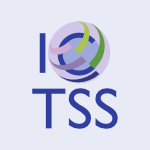 ICTSS-2013-PellegrinoCM #protocol #security
ICTSS-2013-PellegrinoCM #protocol #security- A Tool for Supporting Developers in Analyzing the Security of Web-Based Security Protocols (GP, LC, TM), pp. 277–282.
 CSMR-2012-BernardiCLPD #communication #debugging #eclipse
CSMR-2012-BernardiCLPD #communication #debugging #eclipse- Do Developers Introduce Bugs When They Do Not Communicate? The Case of Eclipse and Mozilla (MLB, GC, GADL, MDP, DD), pp. 139–148.
 CSMR-2012-HurdugaciZ #maintenance #testing
CSMR-2012-HurdugaciZ #maintenance #testing- Aiding Software Developers to Maintain Developer Tests (VH, AZ), pp. 11–20.
 CSMR-2012-Penta #approach #empirical #maintenance #reverse engineering
CSMR-2012-Penta #approach #empirical #maintenance #reverse engineering- Empirical Studies in Reverse Engineering and Maintenance: Employing Developers to Evaluate Your Approach and Tool (MDP), pp. 567–568.
 ICPC-2012-DeLine
ICPC-2012-DeLine - Studying developers for fun and profit: (RD), p. 11.
 ICPC-2012-PanichellaAPMC #mining #source code
ICPC-2012-PanichellaAPMC #mining #source code- Mining source code descriptions from developer communications (SP, JA, MDP, AM, GC), pp. 63–72.
 ICSM-2012-BiegelBHD #how #order
ICSM-2012-BiegelBHD #how #order- The Order of Things: How developers sort fields and methods (BB, FB, WH, SD), pp. 88–97.
 ICSM-2012-GuzziBMN #communication #enterprise
ICSM-2012-GuzziBMN #communication #enterprise- Facilitating enterprise software developer communication with CARES (AG, AB, JKM, KN), pp. 527–536.
 ICSM-2012-HindleBZN #analysis #implementation #question #requirements #topic
ICSM-2012-HindleBZN #analysis #implementation #question #requirements #topic- Relating requirements to implementation via topic analysis: Do topics extracted from requirements make sense to managers and developers? (AH, CB, TZ, NN), pp. 243–252.
 ICSM-2012-ZhangPXZ #what #why
ICSM-2012-ZhangPXZ #what #why- Cloning practices: Why developers clone and what can be changed (GZ, XP, ZX, WZ), pp. 285–294.
 MSR-2012-CapiluppiSY
MSR-2012-CapiluppiSY - Developing an h-index for OSS developers (AC, AS, AY), pp. 251–254.
 SCAM-2012-ThiagarajanHBR #contract #data flow
SCAM-2012-ThiagarajanHBR #contract #data flow- Bakar Alir: Supporting Developers in Construction of Information Flow Contracts in SPARK (HT, JH, JB, R), pp. 132–137.
 CSCW-2012-BrownLB #design #effectiveness
CSCW-2012-BrownLB #design #effectiveness- Interactional identity: designers and developers making joint work meaningful and effective (JMB, GL, RB), pp. 1381–1390.
 CSCW-2012-GogginsBV #coordination #named #proximity
CSCW-2012-GogginsBV #coordination #named #proximity- Proximity: a measure to quantify the need for developers’ coordination (SPG, KB, GV), pp. 1351–1360.
 MoDELS-2012-GravinoRST #comprehension #design pattern #documentation #replication #source code
MoDELS-2012-GravinoRST #comprehension #design pattern #documentation #replication #source code- Do Professional Developers Benefit from Design Pattern Documentation? A Replication in the Context of Source Code Comprehension (CG, MR, GS, GT), pp. 185–201.
 OOPSLA-2012-DattaSS #collaboration #framework #platform
OOPSLA-2012-DattaSS #collaboration #framework #platform- Talk versus work: characteristics of developer collaboration on the jazz platform (SD, RS, BS), pp. 655–668.
 PLATEAU-2012-MeyerovichR12a #case study #experience #how #overview #repository
PLATEAU-2012-MeyerovichR12a #case study #experience #how #overview #repository- How not to survey developers and repositories: experiences analyzing language adoption (LAM, ASR), pp. 7–16.
 FSE-2012-Murphy-HillJM #development #recommendation
FSE-2012-Murphy-HillJM #development #recommendation- Improving software developers’ fluency by recommending development environment commands (ERMH, RJ, GCM), p. 42.
 FSE-2012-OkurD #how #library #parallel #question
FSE-2012-OkurD #how #library #parallel #question- How do developers use parallel libraries? (SO, DD), p. 54.
 FSE-2012-RobbesLR #api #ecosystem #how #smalltalk
FSE-2012-RobbesLR #api #ecosystem #how #smalltalk- How do developers react to API deprecation?: the case of a smalltalk ecosystem (RR, ML, DR), p. 56.
 ICSE-2012-Blincoe #coordination #performance #process
ICSE-2012-Blincoe #coordination #performance #process- Timely and efficient facilitation of coordination of software developers’ activities (KB), pp. 1539–1542.
 ICSE-2012-Blincoe12a #collaboration #coordination #detection #requirements
ICSE-2012-Blincoe12a #collaboration #coordination #detection #requirements- Timely detection of Coordination Requirements to support collaboration among software developers (KB), pp. 1601–1603.
 ICSE-2012-LavalleeR #overview #perspective #process
ICSE-2012-LavalleeR #overview #perspective #process- The impacts of software process improvement on developers: A systematic review (ML, PNR), pp. 113–122.
 ICSE-2012-NguyenNDKS #analysis #fault
ICSE-2012-NguyenNDKS #analysis #fault- Inferring developer expertise through defect analysis (TTN, TNN, ED, TK, PS), pp. 1297–1300.
 ICSE-2012-RoehmM #automation #detection #development #problem #process
ICSE-2012-RoehmM #automation #detection #development #problem #process- Automatically detecting developer activities and problems in software development work (TR, WM), pp. 1261–1264.
 ICSE-2012-RoehmTKM #how #question
ICSE-2012-RoehmTKM #how #question- How do professional developers comprehend software? (TR, RT, RK, WM), pp. 255–265.
 ICSE-2012-ServantJ #automation #fault #locality #named
ICSE-2012-ServantJ #automation #fault #locality #named- WhoseFault: Automatic developer-to-fault assignment through fault localization (FS, JAJ), pp. 36–46.
 ICSE-2012-Shang #using
ICSE-2012-Shang #using- Bridging the divide between software developers and operators using logs (WS), pp. 1583–1586.
 ICSE-2012-SillittiSV #case study #comprehension #industrial #programming #scalability
ICSE-2012-SillittiSV #case study #comprehension #industrial #programming #scalability- Understanding the impact of Pair Programming on developers attention: A case study on a large industrial experimentation (AS, GS, JV), pp. 1094–1101.
 ICSE-2012-Westermann #feedback #performance
ICSE-2012-Westermann #feedback #performance- A generic methodology to derive domain-specific performance feedback for developers (DW), pp. 1527–1530.
 ICSE-2012-XuanJRZ #debugging #repository
ICSE-2012-XuanJRZ #debugging #repository- Developer prioritization in bug repositories (JX, HJ, ZR, WZ), pp. 25–35.
 PPoPP-2012-MarkerTPBG #algebra #linear
PPoPP-2012-MarkerTPBG #algebra #linear- Mechanizing the expert dense linear algebra developer (BM, AT, JP, DSB, RAvdG), pp. 289–290.
 DocEng-2011-Tseng
DocEng-2011-Tseng - Developer-friendly annotation-based HTML-to-XML transformation technology (LCHT), pp. 73–76.
 ITiCSE-2011-Grasser #case study #component #experience #implementation #web
ITiCSE-2011-Grasser #case study #component #experience #implementation #web- Experiences in implementing a studio component into a course for novice web developers (RG), pp. 23–27.
 ICPC-2011-Parnin #named #towards
ICPC-2011-Parnin #named #towards- Subvocalization — Toward Hearing the Inner Thoughts of Developers (CP), pp. 197–200.
 ICSM-2011-DilshenerW #concept
ICSM-2011-DilshenerW #concept- Relating developers’ concepts and artefact vocabulary in a financial software module (TD, MW), pp. 412–417.
 ICSM-2011-HongKCB #comprehension #evolution #network #social
ICSM-2011-HongKCB #comprehension #evolution #network #social- Understanding a developer social network and its evolution (QH, SK, SCC, CB), pp. 323–332.
 MSR-2011-CallauRTR #how #programming language #smalltalk
MSR-2011-CallauRTR #how #programming language #smalltalk- How developers use the dynamic features of programming languages: the case of smalltalk (OC, RR, ÉT, DR), pp. 23–32.
 MSR-2011-EyolfsonTL #commit #debugging #experience
MSR-2011-EyolfsonTL #commit #debugging #experience- Do time of day and developer experience affect commit bugginess (JE, LT, PL), pp. 153–162.
 MSR-2011-PaganoM #case study #how
MSR-2011-PaganoM #case study #how- How do developers blog?: an exploratory study (DP, WM), pp. 123–132.
 MSR-2011-SinhaMS #open source #trust
MSR-2011-SinhaMS #open source #trust- Entering the circle of trust: developer initiation as committers in open-source projects (VSS, SM, SS), pp. 133–142.
 WCRE-2011-SurianLLTLF #collaboration #network #people #recommendation
WCRE-2011-SurianLLTLF #collaboration #network #people #recommendation- Recommending People in Developers’ Collaboration Network (DS, NL, DL, HT, EPL, CF), pp. 379–388.
 CHI-2011-FritzM #how
CHI-2011-FritzM #how- Determining relevancy: how software developers determine relevant information in feeds (TF, GCM), pp. 1827–1830.
 CSCW-2011-SinghJM #community #online
CSCW-2011-SinghJM #community #online- Types of newcomers in an online developer community (VS, AJ, RM), pp. 717–720.
 HIMI-v1-2011-RichardRMM #design pattern #power of #user interface
HIMI-v1-2011-RichardRMM #design pattern #power of #user interface- Giving UI Developers the Power of UI Design Patterns (JR, JMR, SM, JM), pp. 40–47.
 PLATEAU-2011-JaspanA #empirical #protocol
PLATEAU-2011-JaspanA #empirical #protocol- Are object protocols burdensome?: an empirical study of developer forums (CJ, JA), pp. 51–56.
 PLATEAU-2011-LaTozaM #design #tool support
PLATEAU-2011-LaTozaM #design #tool support- Designing useful tools for developers (TDL, BAM), pp. 45–50.
 ESEC-FSE-2011-BarzilayHY #social #social media #using
ESEC-FSE-2011-BarzilayHY #social #social media #using- Using social media to study the diversity of example usage among professional developers (OB, OH, AY), pp. 472–475.
 ICSE-2011-MeneelyW #metric #network #question #trust
ICSE-2011-MeneelyW #metric #network #question #trust- Socio-technical developer networks: should we trust our measurements? (AM, LW), pp. 281–290.
 ICSE-2011-Xiao #generative #identification #problem #testing #towards
ICSE-2011-Xiao #generative #identification #problem #testing #towards- Problem identification for structural test generation: first step towards cooperative developer testing (XX), pp. 1179–1181.
 ICSE-2011-ZhouM #future of
ICSE-2011-ZhouM #future of- Does the initial environment impact the future of developers (MZ, AM), pp. 271–280.
 ICSM-2010-GuzziPD #ide #interactive
ICSM-2010-GuzziPD #ide #interactive- Combining micro-blogging and IDE interactions to support developers in their quests (AG, MP, AvD), pp. 1–5.
 ICSM-2010-NagyVFGKK #assurance #named #quality
ICSM-2010-NagyVFGKK #assurance #named #quality- MAGISTER: Quality assurance of Magic applications for software developers and end users (CN, LV, RF, TG, FK, IK), pp. 1–6.
 MSR-2010-ColacoMFH #analysis
MSR-2010-ColacoMFH #analysis- OSS developers context-specific Preferred Representational systems: A initial Neurolinguistic text analysis of the Apache mailing list (MCJ, MGM, MF, PHdS), pp. 126–129.
 MSR-2010-SchroterBP #debugging #question #stack
MSR-2010-SchroterBP #debugging #question #stack- Do stack traces help developers fix bugs? (AS, NB, RP), pp. 118–121.
 WCRE-2010-SurianLL #collaboration #mining #network #scalability
WCRE-2010-SurianLL #collaboration #mining #network #scalability- Mining Collaboration Patterns from a Large Developer Network (DS, DL, EPL), pp. 269–273.
 CSCW-2010-BreuPSZ #debugging
CSCW-2010-BreuPSZ #debugging- Information needs in bug reports: improving cooperation between developers and users (SB, RP, JS, TZ), pp. 301–310.
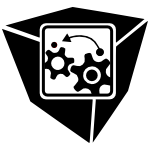 SOFTVIS-2010-Booch #diagrams #question #why
SOFTVIS-2010-Booch #diagrams #question #why- Why don’t developers draw diagrams? (GB), pp. 3–4.
 SEKE-2010-WangWLX
SEKE-2010-WangWLX - Assisting Developers to Read Code Help-Documents Efficiently through Discovering Document-section Relationships (LW, LW, GL, BX), pp. 367–373.
 ECOOP-2010-Hanenberg #empirical #programming #static typing #type system
ECOOP-2010-Hanenberg #empirical #programming #static typing #type system- Doubts about the Positive Impact of Static Type Systems on Programming Tasks in Single Developer Projects — An Empirical Study (SH), pp. 300–303.
 ASE-2010-SindhgattaNSVR #mining
ASE-2010-SindhgattaNSVR #mining- Timesheet assistant: mining and reporting developer effort (RS, NCN, BS, KV, AGR), pp. 265–274.
 FSE-2010-DagenaisR #comprehension #documentation #evolution #open source
FSE-2010-DagenaisR #comprehension #documentation #evolution #open source- Creating and evolving developer documentation: understanding the decisions of open source contributors (BD, MPR), pp. 127–136.
 FSE-2010-ZhouM10a
FSE-2010-ZhouM10a - Developer fluency: achieving true mastery in software projects (MZ, AM), pp. 137–146.
 ICSE-2010-CalikliBA #analysis #bias #education #experience
ICSE-2010-CalikliBA #analysis #bias #education #experience- An analysis of the effects of company culture, education and experience on confirmation bias levels of software developers and testers (GÇ, ABB, BA), pp. 187–190.
 ICSE-2010-FritzM #using
ICSE-2010-FritzM #using- Using information fragments to answer the questions developers ask (TF, GCM), pp. 175–184.
 ICSE-2010-Hattori #collaboration #multi
ICSE-2010-Hattori #collaboration #multi- Enhancing collaboration of multi-developer projects with synchronous changes (LH), pp. 377–380.
 ICSE-2010-LaTozaM #reachability
ICSE-2010-LaTozaM #reachability- Developers ask reachability questions (TDL, BAM), pp. 185–194.
 ICSE-2010-Schroter10a #interactive #predict
ICSE-2010-Schroter10a #interactive #predict- Predicting build outcome with developer interaction in Jazz (AS), pp. 511–512.
 ICSE-2010-TreudeS #using
ICSE-2010-TreudeS #using- Awareness 2.0: staying aware of projects, developers and tasks using dashboards and feeds (CT, MADS), pp. 365–374.
 ICSE-2010-WurschGRG #natural language #query
ICSE-2010-WurschGRG #natural language #query- Supporting developers with natural language queries (MW, GG, GR, HG), pp. 165–174.
 CSEET-2009-CastilloOFE #approach #education #programming #towards
CSEET-2009-CastilloOFE #approach #education #programming #towards- Toward an Approach to Programming Education to Produce Qualified Software Developers (JFC, CMdO, ESF, PVE), pp. 101–104.
 CSMR-2009-Gyimothy #metric #quality
CSMR-2009-Gyimothy #metric #quality- To Use or Not to Use? The Metrics to Measure Software Quality (Developers’ View) (TG), pp. 3–4.
 ICPC-2009-JeffreyFGG #debugging #named
ICPC-2009-JeffreyFGG #debugging #named- BugFix: A learning-based tool to assist developers in fixing bugs (DJ, MF, NG, RG), pp. 70–79.
 ICPC-2009-TorchianoS #agile #comprehension #development #maintenance #testing
ICPC-2009-TorchianoS #agile #comprehension #development #maintenance #testing- TDD = too dumb developers? Implications of Test-Driven Development on maintainability and comprehension of software (MT, AS), pp. 280–282.
 ICSM-2009-HindleGH #analysis #topic #what
ICSM-2009-HindleGH #analysis #topic #what- What’s hot and what’s not: Windowed developer topic analysis (AH, MWG, RCH), pp. 339–348.
 ICSM-2009-ShihabJH #open source #using
ICSM-2009-ShihabJH #open source #using- Studying the use of developer IRC meetings in open source projects (ES, ZMJ, AEH), pp. 147–156.
 ICSM-2009-Wang #motivation #source code #what
ICSM-2009-Wang #motivation #source code #what- What motivate software engineers to refactor source code? evidences from professional developers (YW), pp. 413–416.
 MSR-2009-MaalejH #how #question #word
MSR-2009-MaalejH #how #question #word- From work to word: How do software developers describe their work? (WM, HJH), pp. 121–130.
 MSR-2009-MatterKN #debugging #using
MSR-2009-MatterKN #debugging #using- Assigning bug reports using a vocabulary-based expertise model of developers (DM, AK, ON), pp. 131–140.
 MSR-2009-RoblesGH #evolution
MSR-2009-RoblesGH #evolution- Evolution of the core team of developers in libre software projects (GR, JMGB, IH), pp. 167–170.
 MSR-2009-ShihabJH #chat #gnome #internet #on the #using
MSR-2009-ShihabJH #chat #gnome #internet #on the #using- On the use of Internet Relay Chat (IRC) meetings by developers of the GNOME GTK+ project (ES, ZMJ, AEH), pp. 107–110.
 IDGD-2009-GurzickW #online #social
IDGD-2009-GurzickW #online #social- Developers and Moderators: Observations in the Co-development of an Online Social Space (DG, KFW), pp. 164–172.
 RE-2009-OmoronyiaSRFW #case study #navigation #source code #traceability
RE-2009-OmoronyiaSRFW #case study #navigation #source code #traceability- Use Case to Source Code Traceability: The Developer Navigation View Point (IO, GS, MR, JDF, MW), pp. 237–242.
 ICSE-2009-Mockus #named
ICSE-2009-Mockus #named- Succession: Measuring transfer of code and developer productivity (AM), pp. 67–77.
 ICSE-2009-WolfSDN #analysis #communication #network #predict #social #using
ICSE-2009-WolfSDN #analysis #communication #network #predict #social #using- Predicting build failures using social network analysis on developer communication (TW, AS, DD, THDN), pp. 1–11.
 ITiCSE-2008-NorrisBFRR #how #named
ITiCSE-2008-NorrisBFRR #how #named- ClockIt: collecting quantitative data on how beginning software developers really work (CN, EFB, JBFJ, KR, JR), pp. 37–41.
 ICPC-2008-McMeekinKCC #comprehension #taxonomy
ICPC-2008-McMeekinKCC #comprehension #taxonomy- Checklist Inspections and Modifications: Applying Bloom’s Taxonomy to Categorise Developer Comprehension (DAM, BRvK, EC, DJAC), pp. 224–229.
 MSR-2008-GousiosKS #repository
MSR-2008-GousiosKS #repository- Measuring developer contribution from software repository data (GG, EK, DS), pp. 129–132.
 MSR-2008-SiyCS #challenge #segmentation #using
MSR-2008-SiyCS #challenge #segmentation #using- Summarizing developer work history using time series segmentation: challenge report (HPS, PC, MS), pp. 137–140.
 ICEIS-ISAS2-2008-FukudaY #design #framework #internet
ICEIS-ISAS2-2008-FukudaY #design #framework #internet- Camel Framework — A Framework for Realizing Complete Separation of Developer’s and Designer’s Work in Rich Internet Application (HF, YY), pp. 137–143.
 KDD-2008-Sindhgatta #identification #source code
KDD-2008-Sindhgatta #identification #source code- Identifying domain expertise of developers from source code (RS), pp. 981–989.
 SEKE-2008-LappalainenHSPML #comparison #tool support
SEKE-2008-LappalainenHSPML #comparison #tool support- A Comparison of Time Tracking Tools for Software Developers (JL, LH, JS, TP, HM, HL), pp. 91–96.
 PADL-2008-FernandezFFGM #ml #programming #tool support
PADL-2008-FernandezFFGM #ml #programming #tool support- A Generic Programming Toolkit for PADS/ML: First-Class Upgrades for Third-Party Developers (MFF, KF, JNF, MG, YM), pp. 133–149.
 FSE-2008-MeneelyWSO #analysis #network #predict #social
FSE-2008-MeneelyWSO #analysis #network #predict #social- Predicting failures with developer networks and social network analysis (AM, LW, WS, JAO), pp. 13–23.
 FSE-2008-PinzgerNM #network #predict #question
FSE-2008-PinzgerNM #network #predict #question- Can developer-module networks predict failures? (MP, NN, BM), pp. 2–12.
 ICSE-2008-SouzaR #dependence #empirical
ICSE-2008-SouzaR #dependence #empirical- An empirical study of software developers’ management of dependencies and changes (CRBdS, DFR), pp. 241–250.
 ICSE-2008-StoreyRBMS #debugging #game studies #how
ICSE-2008-StoreyRBMS #debugging #game studies #how- TODO or to bug: exploring how task annotations play a role in the work practices of software developers (MADS, JR, RIB, DM, JS), pp. 251–260.
 VLDB-2007-ChaudhuriNS #database #profiling
VLDB-2007-ChaudhuriNS #database #profiling- Bridging the Application and DBMS Profiling Divide for Database Application Developers (SC, VRN, MS), pp. 1252–1262.
 CSEET-2007-FrezzaT #behaviour #testing
CSEET-2007-FrezzaT #behaviour #testing- Testing as a Mental Discipline: Practical Methods for Affecting Developer Behavior (STF, MHT), pp. 355–356.
 CSMR-2007-GreevyGD #how
CSMR-2007-GreevyGD #how- How Developers Develop Features (OG, TG, SD), pp. 265–274.
 ICSM-2007-SiyCRS #segmentation #version control
ICSM-2007-SiyCRS #segmentation #version control- Discovering Dynamic Developer Relationships from Software Version Histories by Time Series Segmentation (HPS, PC, DJR, MS), pp. 415–424.
 MSR-2007-Gonzalez-BarahonaRH #process
MSR-2007-Gonzalez-BarahonaRH #process- Impact of the Creation of the Mozilla Foundation in the Activity of Developers (JMGB, GR, IH), p. 28.
 MSR-2007-LinsteadRBLB #eclipse #mining #modelling #topic
MSR-2007-LinsteadRBLB #eclipse #mining #modelling #topic- Mining Eclipse Developer Contributions via Author-Topic Models (EL, PR, SKB, CVL, PB), p. 30.
 MSR-2007-RigbyH #analysis #what
MSR-2007-RigbyH #analysis #what- What Can OSS Mailing Lists Tell Us? A Preliminary Psychometric Text Analysis of the Apache Developer Mailing List (PCR, AEH), p. 23.
 MSR-2007-WeissgerberPB #data mining #detection #how #mining #visual notation
MSR-2007-WeissgerberPB #data mining #detection #how #mining #visual notation- Visual Data Mining in Software Archives to Detect How Developers Work Together (PW, MP, MB), p. 9.
 MSR-2007-YuR #cvs #mining #open source #repository
MSR-2007-YuR #cvs #mining #open source #repository- Mining CVS Repositories to Understand Open-Source Project Developer Roles (LY, SR), p. 8.
 CHI-2007-CherubiniVDK #how #why
CHI-2007-CherubiniVDK #how #why- Let’s go to the whiteboard: how and why software developers use drawings (MC, GV, RD, AJK), pp. 557–566.
 HCI-AS-2007-HayakawaUSAK #design #identification #process #web
HCI-AS-2007-HayakawaUSAK #design #identification #process #web- Report on Project to Identify Excellent Local Government Web Sites An Attempt to Educate Web Systems Developers on the Importance of Human-Centered Design Processes (SH, HU, TS, NA, YK), pp. 899–905.
 MoDELS-2007-RenggliDK #approach #named
MoDELS-2007-RenggliDK #approach #named- Magritte — A Meta-driven Approach to Empower Developers and End Users (LR, SD, AK), pp. 106–120.
 MoDELS-2007-RenggliDK #approach #named
MoDELS-2007-RenggliDK #approach #named- Magritte — A Meta-driven Approach to Empower Developers and End Users (LR, SD, AK), pp. 106–120.
 OOPSLA-2007-HirzelG #interface #java #named
OOPSLA-2007-HirzelG #interface #java #named- Jeannie: granting java native interface developers their wishes (MH, RG), pp. 19–38.
 ESEC-FSE-2007-Coman #analysis #automation #low level #using
ESEC-FSE-2007-Coman #analysis #automation #low level #using- An analysis of developers’ tasks using low-level, automatically collected data (IDC), pp. 579–582.
 ESEC-FSE-2007-SharpHBB #difference
ESEC-FSE-2007-SharpHBB #difference- Exploring motivational differences between software developers and project managers (HS, TH, NB, SB), pp. 501–504.
 CSEET-2006-BunseGPSV #case study #experience
CSEET-2006-BunseGPSV #case study #experience- Coaching Professional Software Developers — An Experience Report (CB, IG, CP, SSN, CV), pp. 123–130.
 CSMR-2006-SeebergerKGD #how #named #visualisation
CSMR-2006-SeebergerKGD #how #named #visualisation- Chronia: Visualizing How Developers Change Software Systems (MS, AK, TG, SD), pp. 345–348.
 ICPC-2006-BalintMG #how
ICPC-2006-BalintMG #how- How Developers Copy (MB, RM, TG), pp. 56–68.
 ICSM-2006-Hassan #mining #repository
ICSM-2006-Hassan #mining #repository- Mining Software Repositories to Assist Developers and Support Managers (AEH), pp. 339–342.
 MSR-2006-RoblesG
MSR-2006-RoblesG - Geographic location of developers at SourceForge (GR, JMGB), pp. 144–150.
 MSR-2006-TsunodaMKKM #using
MSR-2006-TsunodaMKKM #using- Analyzing OSS developers’ working time using mailing lists archives (MT, AM, TK, YK, KiM), pp. 181–182.
 POPL-2006-Sweeney #game studies #perspective #programming language
POPL-2006-Sweeney #game studies #perspective #programming language- The next mainstream programming language: a game developer’s perspective (TS), p. 269.
 ICSE-2006-LaTozaVD #case study #maintenance #modelling
ICSE-2006-LaTozaVD #case study #maintenance #modelling- Maintaining mental models: a study of developer work habits (TDL, GV, RD), pp. 492–501.
 ISSTA-2006-BoshernitsanDS #challenge #testing
ISSTA-2006-BoshernitsanDS #challenge #testing- From daikon to agitator: lessons and challenges in building a commercial tool for developer testing (MB, RKD, AS), pp. 169–180.
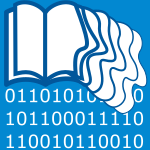 JCDL-2005-Khoo #development #education #library
JCDL-2005-Khoo #development #education #library- Tacit user and developer frames in user-led collection development: the case of the digital water education library (MK), pp. 213–222.
 CSEET-2005-Selic #what
CSEET-2005-Selic #what- What I Wish I Had Learned in School: Reflections on 30+ Years as a Software Developer (BS), p. 5.
 MSR-2005-RoblesG #identification
MSR-2005-RoblesG #identification- Developer identification methods for integrated data from various sources (GR, JMGB), pp. 66–70.
 SEFM-2005-CarterMM #refinement
SEFM-2005-CarterMM #refinement- Software Refinement with Perfect Developer (GC, RM, JMM), pp. 363–373.
 SEKE-2005-NetoRP #automation #perspective #testing
SEKE-2005-NetoRP #automation #perspective #testing- System Testing Automation: A Developer Perspective (PdAdSN, RFR, CIPdSeP), pp. 380–385.
 ICEIS-v3-2004-CloeteG #development #object-oriented
ICEIS-v3-2004-CloeteG #development #object-oriented- OO Systems Development Barriers for Structural Developers (EC, AG), pp. 42–47.
 HT-2003-KarousosTP #approach #hypermedia
HT-2003-KarousosTP #approach #hypermedia- Increasing the usage of open hypermedia systems: a developer-side approach (NK, MT, IP), pp. 148–149.
 FME-2003-BurdyRL #approach #correctness #java
FME-2003-BurdyRL #approach #correctness #java- Java Applet Correctness: A Developer-Oriented Approach (LB, AR, JLL), pp. 422–439.
 SEKE-2003-CostagliolaMF #3d #evaluation #perspective #web
SEKE-2003-CostagliolaMF #3d #evaluation #perspective #web- An Evaluation of Web3d Technologies from Developer’s and End-User’s Point of View (GC, SDM, FF), pp. 25–32.
 ICSE-2003-Fairbanks #architecture #case study #experience #modelling #why
ICSE-2003-Fairbanks #architecture #case study #experience #modelling #why- Why Can’t They Create Architecture Models Like “Developer X”? An Experience Report (GF), pp. 548–552.
 ICSE-2003-YeK #comprehension #motivation #open source #towards
ICSE-2003-YeK #comprehension #motivation #open source #towards- Toward an Understanding of the Motivation of Open Source Software Developers (YY, KK), pp. 419–429.
 SIGAda-2002-Dulman #ada #visual notation
SIGAda-2002-Dulman #ada #visual notation- Visual Ada developer (LD), pp. 30–34.
 SVIS-2001-Evstiougov-Babaev #control flow #embedded #graph #visualisation
SVIS-2001-Evstiougov-Babaev #control flow #embedded #graph #visualisation- Call Graph and Control Flow Graph Visualization for Developers of Embedded Applications (AAEB), pp. 337–346.
 KDD-2001-Netz #data mining #database #framework #mining #platform
KDD-2001-Netz #data mining #database #framework #mining #platform- Data mining platform for database developers (AN), p. 14.
 TOOLS-USA-2001-Devos #design #tool support
TOOLS-USA-2001-Devos #design #tool support- A Whack on the Side of the Designer’s Head: A Toolkit for the Creative Developer (MMD), p. 391.
 ISSTA-2000-Pincus #analysis #case study #experience #tool support
ISSTA-2000-Pincus #analysis #case study #experience #tool support- Analysis is necessary, but far from sufficient: Experiences building and deploying successful tools for developers and testers (JDP), p. 1.
 WICSA-1999-Gentleman #architecture
WICSA-1999-Gentleman #architecture- Architecture for Software Construction by Unrelated Developers (WMG), pp. 423–436.
 IWPC-1998-SimCH #code search #maintenance #overview #source code
IWPC-1998-SimCH #code search #maintenance #overview #source code- Archetypal Source Code Searches: A Survey of Software Developers and Maintainers (SES, CLAC, RCH), pp. 180–187.
 ICSE-1997-PorterSV #comprehension #process
ICSE-1997-PorterSV #comprehension #process- Understanding the Effects of Developer Activities on Inspection Interval (AAP, HPS, LGV), pp. 128–138.
 ICSE-1997-VernerC #prototype
ICSE-1997-VernerC #prototype- The Effect of Department Size on Developer Attitudes to Prototyping (JMV, NC), pp. 445–455.
 ICSE-1997-Yourdon #re-engineering
ICSE-1997-Yourdon #re-engineering- Beyond Software Engineering: Ten Imperatives for the Successful Software Developer at the End of the Decade (EY), p. 538.
 KBSE-1994-GirgensohnRS #communication #design
KBSE-1994-GirgensohnRS #communication #design- Agent-Based Support for Communication Between Developers and Users in Software Design (AG, DFR, FMSI), pp. 22–29.
 ESEC-1993-Godart #coordination #named #transaction
ESEC-1993-Godart #coordination #named #transaction- COO: A Transaction Model to Support COOperating Software Developers COOrdination (CG), pp. 361–379.
 CHI-1992-NielsenBDMMR #design #education #user interface #visual notation
CHI-1992-NielsenBDMMR #design #education #user interface #visual notation- Teaching Experienced Developers to Design Graphical User Interfaces (JN, RMB, TD, NEM, MJM, RWR), pp. 557–564.
 ICSA-2019-TianLB #architecture #case study #how #smell #stack overflow
ICSA-2019-TianLB #architecture #case study #how #smell #stack overflow ICPC-2019-GoncalesFSF
ICPC-2019-GoncalesFSF  ICPC-2019-Praza #workflow
ICPC-2019-Praza #workflow ICSME-2019-AlOmar #comprehension #refactoring #towards
ICSME-2019-AlOmar #comprehension #refactoring #towards ICSME-2019-JinCX #api #question #what
ICSME-2019-JinCX #api #question #what MSR-2019-BangashSCWHA #case study #machine learning #ml #stack overflow #what
MSR-2019-BangashSCWHA #case study #machine learning #ml #stack overflow #what MSR-2019-ManesB #git #how #question #stack overflow #what
MSR-2019-ManesB #git #how #question #stack overflow #what MSR-2019-WangPWZ #api
MSR-2019-WangPWZ #api SANER-2019-AshrafME #dependence #interactive #mining
SANER-2019-AshrafME #dependence #interactive #mining SANER-2019-GuoWWDYXZ #comprehension #mobile
SANER-2019-GuoWWDYXZ #comprehension #mobile SANER-2019-MeloCT #exception #guidelines #java
SANER-2019-MeloCT #exception #guidelines #java SCAM-2019-AlizadehFK #less is more #multi #refactoring
SCAM-2019-AlizadehFK #less is more #multi #refactoring SCAM-2019-GomesCS
SCAM-2019-GomesCS  DiGRA-2019-WestecottSHR #game studies #research
DiGRA-2019-WestecottSHR #game studies #research FDG-2019-LuPN #analysis #communication #game studies
FDG-2019-LuPN #analysis #communication #game studies CIKM-2019-GongZ00XWH #community #detection #learning #online #using
CIKM-2019-GongZ00XWH #community #detection #learning #online #using KDD-2019-Sundaresan #scalability
KDD-2019-Sundaresan #scalability ASE-2019-AmreenKM
ASE-2019-AmreenKM  ESEC-FSE-2019-BagherzadehK #big data #scalability #what
ESEC-FSE-2019-BagherzadehK #big data #scalability #what ESEC-FSE-2019-Cetin #graph #identification #traceability #using
ESEC-FSE-2019-Cetin #graph #identification #traceability #using ESEC-FSE-2019-EckPCB #comprehension #perspective #testing
ESEC-FSE-2019-EckPCB #comprehension #perspective #testing ESEC-FSE-2019-Marques #documentation #natural language
ESEC-FSE-2019-Marques #documentation #natural language ESEC-FSE-2019-SafwanS #commit #perspective
ESEC-FSE-2019-SafwanS #commit #perspective ICST-2019-BaloghHB #eclipse #fault #ide #interactive #java #locality #named
ICST-2019-BaloghHB #eclipse #fault #ide #interactive #java #locality #named ICSA-2018-SolimanSGZR #architecture #community #online
ICSA-2018-SolimanSGZR #architecture #community #online ICPC-2018-FakhouryMAA #readability #source code
ICPC-2018-FakhouryMAA #readability #source code ICPC-2018-SalzaPNDLF #library #mobile #question
ICPC-2018-SalzaPNDLF #library #mobile #question ICPC-2018-TymchukGN #feedback #jit #static analysis #what
ICPC-2018-TymchukGN #feedback #jit #static analysis #what ICPC-2018-VassalloPZG
ICPC-2018-VassalloPZG  ICPC-2018-VivianiJFXM #design #question #topic #what
ICPC-2018-VivianiJFXM #design #question #topic #what ICPC-2018-ZugerF
ICPC-2018-ZugerF  ICSME-2018-FraczD #assessment #automation #case study #game studies
ICSME-2018-FraczD #assessment #automation #case study #game studies ICSME-2018-KrasniqiM #component #generative #speech
ICSME-2018-KrasniqiM #component #generative #speech MSR-2018-AmlekarGGM #question
MSR-2018-AmlekarGGM #question MSR-2018-BellmanSB #analysis #debugging #ide #timeline #visual notation
MSR-2018-BellmanSB #analysis #debugging #ide #timeline #visual notation MSR-2018-BulmerMD #ide #machine learning #predict
MSR-2018-BulmerMD #ide #machine learning #predict MSR-2018-Cassee0CS #fault #how
MSR-2018-Cassee0CS #fault #how MSR-2018-CiborowskaKD #behaviour #detection #reuse #using #web
MSR-2018-CiborowskaKD #behaviour #detection #reuse #using #web MSR-2018-ClaesMKF08 #automation #identification #open source #towards
MSR-2018-ClaesMKF08 #automation #identification #open source #towards MSR-2018-CohenC08 #analysis #git #repository #scalability
MSR-2018-CohenC08 #analysis #git #repository #scalability MSR-2018-MiddletonMGMMWM08 #git #predict
MSR-2018-MiddletonMGMMWM08 #git #predict MSR-2018-ProkschAN #dataset #empirical #process
MSR-2018-ProkschAN #dataset #empirical #process MSR-2018-RahmanBPKLQPSR08 #how #retrieval
MSR-2018-RahmanBPKLQPSR08 #how #retrieval MSR-2018-RodriguezTK #empirical #performance
MSR-2018-RodriguezTK #empirical #performance MSR-2018-WilkieHKLNRPK #ide #identification #using
MSR-2018-WilkieHKLNRPK #ide #identification #using MSR-2018-YamashitaPKG #ide #interactive
MSR-2018-YamashitaPKG #ide #interactive SANER-2018-AlkadhiNGB #how #question
SANER-2018-AlkadhiNGB #how #question SANER-2018-BritoXHV #api #how #java #why
SANER-2018-BritoXHV #api #how #java #why SANER-2018-DigkasLACA #ecosystem #how #question #technical debt
SANER-2018-DigkasLACA #ecosystem #how #question #technical debt SANER-2018-LiSH
SANER-2018-LiSH  SANER-2018-MontenegroMCB #exception #policy
SANER-2018-MontenegroMCB #exception #policy SANER-2018-VasquezVTP #android #how
SANER-2018-VasquezVTP #android #how SANER-2018-VassalloPPPZG #static analysis #tool support
SANER-2018-VassalloPPPZG #static analysis #tool support SCAM-2018-KiniT #fault #metric #predict #research
SCAM-2018-KiniT #fault #metric #predict #research CIG-2018-MascarenhasGPDS #game studies #tool support
CIG-2018-MascarenhasGPDS #game studies #tool support MoDELS-2018-HenriquesLAG #experience #modelling #process
MoDELS-2018-HenriquesLAG #experience #modelling #process ASE-2018-JanesMR #lens #named
ASE-2018-JanesMR #lens #named ASE-2018-Ye0WW #crowdsourcing #personalisation #recommendation
ASE-2018-Ye0WW #crowdsourcing #personalisation #recommendation ESEC-FSE-2018-0002JCHZ #code review #overview #perspective
ESEC-FSE-2018-0002JCHZ #code review #overview #perspective ESEC-FSE-2018-BarikFMP #compilation #how #problem #question
ESEC-FSE-2018-BarikFMP #compilation #how #problem #question ESEC-FSE-2018-Brindescu #how #process #tool support
ESEC-FSE-2018-Brindescu #how #process #tool support ESEC-FSE-2018-IvanovPRSYZ #design #validation
ESEC-FSE-2018-IvanovPRSYZ #design #validation ESEC-FSE-2018-WoodRAM #debugging #detection #speech
ESEC-FSE-2018-WoodRAM #debugging #detection #speech ICSA-2017-SolimanGR #architecture #community #ontology
ICSA-2017-SolimanGR #architecture #community #ontology ICPC-2017-AlmeidaMWH #open source #question
ICPC-2017-AlmeidaMWH #open source #question ICPC-2017-CatolinoPLFZ #assessment #empirical #predict
ICPC-2017-CatolinoPLFZ #assessment #empirical #predict ICPC-2017-HozanoGAFC #detection #exclamation #performance #smell
ICPC-2017-HozanoGAFC #detection #exclamation #performance #smell ICPC-2017-ZampettiPBMPL #documentation #how
ICPC-2017-ZampettiPBMPL #documentation #how ICSME-2017-BlondeauEACCD #case study #scalability #testing #what
ICSME-2017-BlondeauEACCD #case study #scalability #testing #what ICSME-2017-RobillardMTBCEG #documentation #on-demand
ICSME-2017-RobillardMTBCEG #documentation #on-demand ICSME-2017-Sae-LimHS #case study #how #smell
ICSME-2017-Sae-LimHS #case study #how #smell ICSME-2017-VasquezBMP #android #how #question
ICSME-2017-VasquezBMP #android #how #question ICSME-2017-Wesel0RS
ICSME-2017-Wesel0RS  MSR-2017-BaoXXLL #industrial #mining #scalability
MSR-2017-BaoXXLL #industrial #mining #scalability MSR-2017-GuptaKGM #integration
MSR-2017-GuptaKGM #integration MSR-2017-JhaLL #android #empirical #fault
MSR-2017-JhaLL #android #empirical #fault MSR-2017-RahmanRK #code review #experience #overview #predict #using
MSR-2017-RahmanRK #code review #experience #overview #predict #using SANER-2017-BladelMD #empirical #evolution
SANER-2017-BladelMD #empirical #evolution SANER-2017-Ganea #dependence #evolution #named
SANER-2017-Ganea #dependence #evolution #named SANER-2017-SharmaTSLY #learning #twitter
SANER-2017-SharmaTSLY #learning #twitter SANER-2017-XavierHV #api #why
SANER-2017-XavierHV #api #why SCAM-2017-SayaghDAA #empirical #framework #java #matter
SCAM-2017-SayaghDAA #empirical #framework #java #matter DiGRA-2017-ConsalvoP #game studies
DiGRA-2017-ConsalvoP #game studies ASE-2017-KrugerNRAMBGGWD #encryption #named #using
ASE-2017-KrugerNRAMBGGWD #encryption #named #using ASE-2017-MirhosseiniP #automation #dependence #question
ASE-2017-MirhosseiniP #automation #dependence #question ASE-2017-PaixaoKHRH #architecture #question
ASE-2017-PaixaoKHRH #architecture #question ASE-2017-TomasdottirAD #how #javascript #why
ASE-2017-TomasdottirAD #how #javascript #why ASE-2017-WangSFY #crowdsourcing #recommendation
ASE-2017-WangSFY #crowdsourcing #recommendation ASE-2017-XuXXL #automation #generative #named #summary
ASE-2017-XuXXL #automation #generative #named #summary ESEC-FSE-2017-Abdalkareem #perspective #using
ESEC-FSE-2017-Abdalkareem #perspective #using ESEC-FSE-2017-AbdalkareemNWMS #case study #empirical #why
ESEC-FSE-2017-AbdalkareemNWMS #case study #empirical #why ECSA-2016-RostN #architecture #documentation #effectiveness #why
ECSA-2016-RostN #architecture #documentation #effectiveness #why WICSA-2016-SolimanGSR #architecture #case study #community #stack overflow
WICSA-2016-SolimanGSR #architecture #case study #community #stack overflow ICSME-2016-LevinY #maintenance #predict #process #semantics #using
ICSME-2016-LevinY #maintenance #predict #process #semantics #using MSR-2016-AhmadKSA #android #challenge #communication
MSR-2016-AhmadKSA #android #challenge #communication MSR-2016-AsaduzzamanARS #exception #how #java #question
MSR-2016-AsaduzzamanARS #exception #how #java #question MSR-2016-BaoLXWT #android #commit #empirical #how #mining #power management
MSR-2016-BaoLXWT #android #commit #empirical #how #mining #power management MSR-2016-DamevskiCSP #interactive #markov #using
MSR-2016-DamevskiCSP #interactive #markov #using MSR-2016-OrtuMDTTMA
MSR-2016-OrtuMDTTMA  MSR-2016-SinhaLS #commit #sentiment
MSR-2016-SinhaLS #commit #sentiment MSR-2016-ThompsonMPG #how #repository
MSR-2016-ThompsonMPG #how #repository SANER-2016-BritoHVR #analysis #api #java #scalability
SANER-2016-BritoHVR #analysis #api #java #scalability SANER-2016-ChowdhurySH #energy #mobile #performance #web
SANER-2016-ChowdhurySH #energy #mobile #performance #web SANER-2016-KinaTHTI
SANER-2016-KinaTHTI  SANER-2016-NayebiAR #mobile #question #what
SANER-2016-NayebiAR #mobile #question #what SANER-2016-RastogiN #community #empirical
SANER-2016-RastogiN #community #empirical DiGRA-FDG-2016-JordanBSR #game studies
DiGRA-FDG-2016-JordanBSR #game studies PLATEAU-2016-RamosVTS #overview
PLATEAU-2016-RamosVTS #overview ASE-2016-ChristakisB #empirical #program analysis #what
ASE-2016-ChristakisB #empirical #program analysis #what ASE-2016-Cito #development #runtime
ASE-2016-Cito #development #runtime ASE-2016-DemuthRE #consistency #detection #multi #nondeterminism #performance
ASE-2016-DemuthRE #consistency #detection #multi #nondeterminism #performance ASE-2016-Greene0 #identification #mining #named #open source
ASE-2016-Greene0 #identification #mining #named #open source ASE-2016-XuYXXCL #network #online #predict #semantics
ASE-2016-XuYXXCL #network #online #predict #semantics FSE-2016-Barik #how #question #static analysis #tool support
FSE-2016-Barik #how #question #static analysis #tool support FSE-2016-ChenSHNF #framework #named #web
FSE-2016-ChenSHNF #framework #named #web FSE-2016-CostaFSM #branch #named #recommendation
FSE-2016-CostaFSM #branch #named #recommendation FSE-2016-Head #health #open source #social
FSE-2016-Head #health #open source #social FSE-2016-PiorkowskiHNFSB #predict
FSE-2016-PiorkowskiHNFSB #predict FSE-2016-Sadowski #workflow
FSE-2016-Sadowski #workflow FSE-2016-SharifCM #re-engineering #research
FSE-2016-SharifCM #re-engineering #research FSE-2016-StoreyZ
FSE-2016-StoreyZ  FSE-2016-Zanjani #effectiveness
FSE-2016-Zanjani #effectiveness FSE-2016-ZhangJKKGH #recommendation
FSE-2016-ZhangJKKGH #recommendation ASPLOS-2016-LiaqatJLGTLGS #architecture #energy #mobile #named #performance
ASPLOS-2016-LiaqatJLGTLGS #architecture #energy #mobile #named #performance ICPC-2015-MacLeodSB #documentation #how #using
ICPC-2015-MacLeodSB #documentation #how #using ICPC-2015-MinelliML #how #what
ICPC-2015-MinelliML #how #what ICPC-2015-Roehm #comprehension
ICPC-2015-Roehm #comprehension ICSME-2015-BaloghABVGV #identification #interactive
ICSME-2015-BaloghABVGV #identification #interactive ICSME-2015-CodobanRDB #case study #how #lens #why
ICSME-2015-CodobanRDB #case study #how #lens #why ICSME-2015-CorleyLQ #web
ICSME-2015-CorleyLQ #web ICSME-2015-HoraRAEDV #api #ecosystem #evolution #how #smalltalk
ICSME-2015-HoraRAEDV #api #ecosystem #evolution #how #smalltalk ICSME-2015-LimaTFK #metric #repository
ICSME-2015-LimaTFK #metric #repository ICSME-2015-NucciPSBOL #debugging #on the #predict
ICSME-2015-NucciPSBOL #debugging #on the #predict ICSME-2015-OliveiraVBS #metric #validation
ICSME-2015-OliveiraVBS #metric #validation ICSME-2015-PiorkowskiFSBKH #bias #debugging #how #information management
ICSME-2015-PiorkowskiFSBKH #bias #debugging #how #information management ICSME-2015-SilvaVMA #co-evolution #empirical
ICSME-2015-SilvaVMA #co-evolution #empirical ICSME-2015-VasquezVLP #android #detection #how #performance
ICSME-2015-VasquezVLP #android #detection #how #performance ICSME-2015-VendomeVBPGP #why
ICSME-2015-VendomeVBPGP #why MSR-2015-HauffG #git
MSR-2015-HauffG #git MSR-2015-MauczkaBSG #commit #dataset
MSR-2015-MauczkaBSG #commit #dataset MSR-2015-WangMG #api #recommendation
MSR-2015-WangMG #api #recommendation MSR-2015-ZanjaniKB #using
MSR-2015-ZanjaniKB #using MSR-2015-ZouXGYYZ #analysis #empirical #non-functional #requirements #stack overflow #topic #using
MSR-2015-ZouXGYYZ #analysis #empirical #non-functional #requirements #stack overflow #topic #using SANER-2015-DamevskiSP #code search #evaluation #metric #scalability #tool support
SANER-2015-DamevskiSP #code search #evaluation #metric #scalability #tool support SANER-2015-JiangSPLZ #comprehension #interactive #natural language #query
SANER-2015-JiangSPLZ #comprehension #interactive #natural language #query SANER-2015-PanichellaAPA #code review #question #static analysis #tool support
SANER-2015-PanichellaAPA #code review #question #static analysis #tool support CHI-PLAY-2015-MaDP
CHI-PLAY-2015-MaDP  FDG-2015-JanssenRMB #framework #game studies
FDG-2015-JanssenRMB #framework #game studies CHI-2015-ZugerF #predict #using
CHI-2015-ZugerF #predict #using CSCW-2015-GuzziBRD #coordination #ide
CSCW-2015-GuzziBRD #coordination #ide HCI-DE-2015-BakkeB #learning #proximity
HCI-DE-2015-BakkeB #learning #proximity SEKE-2015-AndoSUWFIOHKSNY #development #experience #fault #how #process #question
SEKE-2015-AndoSUWFIOHKSNY #development #experience #fault #how #process #question SEKE-2015-TangariM #perspective
SEKE-2015-TangariM #perspective SEKE-2015-WuCZX #c++ #empirical #how #library
SEKE-2015-WuCZX #c++ #empirical #how #library SEKE-2015-ZhaoSCZ #crowdsourcing #effectiveness #recommendation #towards
SEKE-2015-ZhaoSCZ #crowdsourcing #effectiveness #recommendation #towards Onward-2015-CitoLGDKR #feedback #metric #runtime #using
Onward-2015-CitoLGDKR #feedback #metric #runtime #using PLATEAU-2015-KabacVC #evaluation #learning #tool support #usability
PLATEAU-2015-KabacVC #evaluation #learning #tool support #usability ASE-2015-BaoXWZ #process
ASE-2015-BaoXWZ #process ASE-2015-SorboPVPCG #development #email #mining
ASE-2015-SorboPVPCG #development #email #mining ASE-2015-VasquezLVP #database #documentation #how #source code
ASE-2015-VasquezLVP #database #documentation #how #source code ESEC-FSE-2015-BellerGPZ #how #ide #why
ESEC-FSE-2015-BellerGPZ #how #ide #why ESEC-FSE-2015-CasalnuovoVDF #experience #git #social
ESEC-FSE-2015-CasalnuovoVDF #experience #git #social ESEC-FSE-2015-FoucaultPBMF #open source #quality
ESEC-FSE-2015-FoucaultPBMF #open source #quality ESEC-FSE-2015-JohnsonPMH #adaptation #concept #tool support
ESEC-FSE-2015-JohnsonPMH #adaptation #concept #tool support ESEC-FSE-2015-KevicWSSSF #interactive
ESEC-FSE-2015-KevicWSSSF #interactive ESEC-FSE-2015-NorthBSC #named #using
ESEC-FSE-2015-NorthBSC #named #using ESEC-FSE-2015-PhamSS #automation #recommendation
ESEC-FSE-2015-PhamSS #automation #recommendation ESEC-FSE-2015-SadowskiSE #case study #how
ESEC-FSE-2015-SadowskiSE #case study #how ESEC-FSE-2015-SaraivaBZ #how #n-gram
ESEC-FSE-2015-SaraivaBZ #how #n-gram ESEC-FSE-2015-SmithJMCL #security #static analysis
ESEC-FSE-2015-SmithJMCL #security #static analysis ESEC-FSE-2015-WitscheyZWMMZ #security #tool support
ESEC-FSE-2015-WitscheyZWMMZ #security #tool support ICSE-v1-2015-AvgustinovBHLMM #static analysis
ICSE-v1-2015-AvgustinovBHLMM #static analysis ICSE-v1-2015-BarnettBBL #automation #code review #composition #overview
ICSE-v1-2015-BarnettBBL #automation #code review #composition #overview ICSE-v1-2015-GuiMNH #mobile
ICSE-v1-2015-GuiMNH #mobile ICSE-v1-2015-JoblinMASR #approach #community #fine-grained #network
ICSE-v1-2015-JoblinMASR #approach #community #fine-grained #network ICSE-v1-2015-LavalleeR #case study #quality #why
ICSE-v1-2015-LavalleeR #case study #quality #why ICSE-v1-2015-MullerF
ICSE-v1-2015-MullerF  ICSE-v1-2015-ZhuHFZLZ #learning
ICSE-v1-2015-ZhuHFZLZ #learning ICSE-v2-2015-BaoLXWZ #behaviour #interactive #modelling #named #using #video
ICSE-v2-2015-BaoLXWZ #behaviour #interactive #modelling #named #using #video ICSE-v2-2015-BellerGZ #how #question
ICSE-v2-2015-BellerGZ #how #question ICSE-v2-2015-Beyer #api #mobile #named #recommendation
ICSE-v2-2015-Beyer #api #mobile #named #recommendation ICSE-v2-2015-MinelliML
ICSE-v2-2015-MinelliML  ICSE-v2-2015-Muller
ICSE-v2-2015-Muller  ICSE-v2-2015-Squire #social #social media #stack overflow
ICSE-v2-2015-Squire #social #social media #stack overflow SAC-2015-HozanoFSFC #detection #feedback #smell #using
SAC-2015-HozanoFSFC #detection #feedback #smell #using SAC-2015-JuniorSPM
SAC-2015-JuniorSPM  SAC-2015-PalviainenKKLMN #collaboration #design #experience #framework
SAC-2015-PalviainenKKLMN #collaboration #design #experience #framework ICST-2015-KochharTNZL #automation #comprehension #testing
ICST-2015-KochharTNZL #automation #comprehension #testing CSMR-WCRE-2014-EspinhaZG #api #web
CSMR-WCRE-2014-EspinhaZG #api #web CSMR-WCRE-2014-Heing-BeckerKS #injection
CSMR-WCRE-2014-Heing-BeckerKS #injection ICPC-2014-VassalloPPC #mining #named #source code
ICPC-2014-VassalloPPC #mining #named #source code ICPC-2014-WaltersSSK #traceability
ICPC-2014-WaltersSSK #traceability ICSME-2014-Bettenburg #communication #evolution #quality
ICSME-2014-Bettenburg #communication #evolution #quality ICSME-2014-BhattacharyaNF #approach #graph
ICSME-2014-BhattacharyaNF #approach #graph ICSME-2014-PalombaBPOL #case study #smell
ICSME-2014-PalombaBPOL #case study #smell ICSME-2014-PanichellaBPCA #how
ICSME-2014-PanichellaBPCA #how MSR-2014-BajajPM #mining #web
MSR-2014-BajajPM #mining #web MSR-2014-BrunetMTFG #design #question
MSR-2014-BrunetMTFG #design #question MSR-2014-MurgiaTAO #analysis
MSR-2014-MurgiaTAO #analysis SCAM-2014-BazrafshanK #debugging #performance
SCAM-2014-BazrafshanK #debugging #performance FDG-2014-TaylorP #game studies #women
FDG-2014-TaylorP #game studies #women VS-Games-2014-ChaudyCH #education #game studies #named
VS-Games-2014-ChaudyCH #education #game studies #named CHI-2014-TanNTNTEW #behaviour #smarttech
CHI-2014-TanNTNTEW #behaviour #smarttech HCI-TMT-2014-LizanoS #comprehension #towards #usability
HCI-TMT-2014-LizanoS #comprehension #towards #usability SCSM-2014-MeloHSBGB #gamification #version control
SCSM-2014-MeloHSBGB #gamification #version control VISSOFT-2014-BarikLCM #approach #compilation #how #visualisation
VISSOFT-2014-BarikLCM #approach #compilation #how #visualisation VISSOFT-2014-MinelliMLB #interactive #visualisation
VISSOFT-2014-MinelliMLB #interactive #visualisation SEKE-2014-HegdeW #how #overview #perspective
SEKE-2014-HegdeW #how #overview #perspective OOPSLA-2014-BrutschyF0 #independence #static analysis
OOPSLA-2014-BrutschyF0 #independence #static analysis PLATEAU-2014-SadowskiY #concurrent #detection #how #tool support
PLATEAU-2014-SadowskiY #concurrent #detection #how #tool support REFSQ-2014-AbeleinP #communication #scalability
REFSQ-2014-AbeleinP #communication #scalability FSE-2014-FritzSKSB #modelling
FSE-2014-FritzSKSB #modelling FSE-2014-MeyerFMZ
FSE-2014-MeyerFMZ  FSE-2014-Penix #case study #experience #tool support
FSE-2014-Penix #case study #experience #tool support FSE-2014-XuanODF #congruence #graph
FSE-2014-XuanODF #congruence #graph ICSE-2014-ChenLHXZ #mining #mobile #named
ICSE-2014-ChenLHXZ #mining #mobile #named ICSE-2014-GopinathJG #evaluation #test coverage
ICSE-2014-GopinathJG #evaluation #test coverage ICSE-2014-SingerFS #how #re-engineering #twitter #using
ICSE-2014-SingerFS #how #re-engineering #twitter #using SAC-2014-CostaKAC #case study #commit
SAC-2014-CostaKAC #case study #commit SAC-2014-MaWX #behaviour #commit #empirical #open source
SAC-2014-MaWX #behaviour #commit #empirical #open source SAC-2014-YangZL #algorithm #debugging #effectiveness #multi #recommendation
SAC-2014-YangZL #algorithm #debugging #effectiveness #multi #recommendation ISSTA-2014-NistorR #named #performance #predict #problem #smarttech
ISSTA-2014-NistorR #named #performance #predict #problem #smarttech ECSA-2013-RostNLC #architecture #documentation #overview
ECSA-2013-RostNLC #architecture #documentation #overview ITiCSE-2013-Al-SubaihinA #mobile
ITiCSE-2013-Al-SubaihinA #mobile CSMR-2013-BusingeSB #api #eclipse
CSMR-2013-BusingeSB #api #eclipse CSMR-2013-SoetensDZ #testing
CSMR-2013-SoetensDZ #testing ICPC-2013-ParninTS #challenge
ICPC-2013-ParninTS #challenge ICSM-2013-EbertC #case study #debugging #exception
ICSM-2013-EbertC #case study #debugging #exception ICSM-2013-GharehyaziePF #predict #process #social
ICSM-2013-GharehyaziePF #predict #process #social ICSM-2013-Harder #evolution #how #multi
ICSM-2013-Harder #evolution #how #multi ICSM-2013-MillerCW #embedded #legacy #maintenance #scalability
ICSM-2013-MillerCW #embedded #legacy #maintenance #scalability MSR-2013-RobbesR #interactive #metric #using
MSR-2013-RobbesR #interactive #metric #using MSR-2013-WangG #android #api #case study #detection
MSR-2013-WangG #android #api #case study #detection WCRE-2013-ChatterjiCKH #case study #maintenance
WCRE-2013-ChatterjiCKH #case study #maintenance WCRE-2013-LiXPZ #how #question #what
WCRE-2013-LiXPZ #how #question #what WCRE-2013-SohKGA #comprehension #how #maintenance #process #towards
WCRE-2013-SohKGA #comprehension #how #maintenance #process #towards WCRE-2013-XiaLWZ #debugging #recommendation
WCRE-2013-XiaLWZ #debugging #recommendation WCRE-2013-YamashitaM #overview #smell
WCRE-2013-YamashitaM #overview #smell CHI-2013-KramerKKWB #behaviour #how #ide #navigation #tool support
CHI-2013-KramerKKWB #behaviour #how #ide #navigation #tool support CHI-2013-YangPCLNC #design #development #exclamation #tool support
CHI-2013-YangPCLNC #design #development #exclamation #tool support CSCW-2013-Al-AniBWTKMRP #distributed #process #trust
CSCW-2013-Al-AniBWTKMRP #distributed #process #trust CSCW-2013-MarlowD #process
CSCW-2013-MarlowD #process CSCW-2013-SingerFCTSS #assessment #ecosystem #empirical #social
CSCW-2013-SingerFCTSS #assessment #ecosystem #empirical #social HCI-III-2013-RuffieuxLKM #gesture #visual notation
HCI-III-2013-RuffieuxLKM #gesture #visual notation VISSOFT-2013-BaloghB #collaboration #named
VISSOFT-2013-BaloghB #collaboration #named VISSOFT-2013-MinelliL #visualisation #workflow
VISSOFT-2013-MinelliL #visualisation #workflow SEKE-2013-CalikliB #bias #fault #predict
SEKE-2013-CalikliB #bias #fault #predict SEKE-2013-IqbalKH #behaviour #communication #social
SEKE-2013-IqbalKH #behaviour #communication #social SEKE-2013-LinMC #commit #empirical #open source #process
SEKE-2013-LinMC #commit #empirical #open source #process ECOOP-2013-TasharofiDJ #concurrent #modelling #question #scala #why
ECOOP-2013-TasharofiDJ #concurrent #modelling #question #scala #why OOPSLA-2013-HoppeH #comparison #empirical #java
OOPSLA-2013-HoppeH #comparison #empirical #java OOPSLA-2013-Zhang0K #evolution #fault #injection #locality
OOPSLA-2013-Zhang0K #evolution #fault #injection #locality ICSE-2013-BavotaDOPPL #empirical
ICSE-2013-BavotaDOPPL #empirical ICSE-2013-CanforaPGOP #named
ICSE-2013-CanforaPGOP #named ICSE-2013-Ell #identification #network
ICSE-2013-Ell #identification #network ICSE-2013-JohnsonSMB #debugging #question #static analysis #tool support #why
ICSE-2013-JohnsonSMB #debugging #question #static analysis #tool support #why ICSE-2013-LewisLSZOW #case study #debugging #predict
ICSE-2013-LewisLSZOW #case study #debugging #predict ICSE-2013-Rajlich #education #re-engineering
ICSE-2013-Rajlich #education #re-engineering ICSE-2013-ShangJHAHM #big data #data analysis
ICSE-2013-ShangJHAHM #big data #data analysis ICSE-2013-Simpson #communication #detection
ICSE-2013-Simpson #communication #detection ICSE-2013-SnipesANM #performance #towards
ICSE-2013-SnipesANM #performance #towards SAC-2013-WangLJ #empirical #interactive #stack overflow
SAC-2013-WangLJ #empirical #interactive #stack overflow SAC-2013-ZhangL #algorithm #debugging #hybrid #recommendation
SAC-2013-ZhangL #algorithm #debugging #hybrid #recommendation ICTSS-2013-PellegrinoCM #protocol #security
ICTSS-2013-PellegrinoCM #protocol #security CSMR-2012-BernardiCLPD #communication #debugging #eclipse
CSMR-2012-BernardiCLPD #communication #debugging #eclipse CSMR-2012-HurdugaciZ #maintenance #testing
CSMR-2012-HurdugaciZ #maintenance #testing CSMR-2012-Penta #approach #empirical #maintenance #reverse engineering
CSMR-2012-Penta #approach #empirical #maintenance #reverse engineering ICPC-2012-DeLine
ICPC-2012-DeLine  ICPC-2012-PanichellaAPMC #mining #source code
ICPC-2012-PanichellaAPMC #mining #source code ICSM-2012-BiegelBHD #how #order
ICSM-2012-BiegelBHD #how #order ICSM-2012-GuzziBMN #communication #enterprise
ICSM-2012-GuzziBMN #communication #enterprise ICSM-2012-HindleBZN #analysis #implementation #question #requirements #topic
ICSM-2012-HindleBZN #analysis #implementation #question #requirements #topic ICSM-2012-ZhangPXZ #what #why
ICSM-2012-ZhangPXZ #what #why MSR-2012-CapiluppiSY
MSR-2012-CapiluppiSY  SCAM-2012-ThiagarajanHBR #contract #data flow
SCAM-2012-ThiagarajanHBR #contract #data flow CSCW-2012-BrownLB #design #effectiveness
CSCW-2012-BrownLB #design #effectiveness CSCW-2012-GogginsBV #coordination #named #proximity
CSCW-2012-GogginsBV #coordination #named #proximity MoDELS-2012-GravinoRST #comprehension #design pattern #documentation #replication #source code
MoDELS-2012-GravinoRST #comprehension #design pattern #documentation #replication #source code OOPSLA-2012-DattaSS #collaboration #framework #platform
OOPSLA-2012-DattaSS #collaboration #framework #platform PLATEAU-2012-MeyerovichR12a #case study #experience #how #overview #repository
PLATEAU-2012-MeyerovichR12a #case study #experience #how #overview #repository FSE-2012-Murphy-HillJM #development #recommendation
FSE-2012-Murphy-HillJM #development #recommendation FSE-2012-OkurD #how #library #parallel #question
FSE-2012-OkurD #how #library #parallel #question FSE-2012-RobbesLR #api #ecosystem #how #smalltalk
FSE-2012-RobbesLR #api #ecosystem #how #smalltalk ICSE-2012-Blincoe #coordination #performance #process
ICSE-2012-Blincoe #coordination #performance #process ICSE-2012-Blincoe12a #collaboration #coordination #detection #requirements
ICSE-2012-Blincoe12a #collaboration #coordination #detection #requirements ICSE-2012-LavalleeR #overview #perspective #process
ICSE-2012-LavalleeR #overview #perspective #process ICSE-2012-NguyenNDKS #analysis #fault
ICSE-2012-NguyenNDKS #analysis #fault ICSE-2012-RoehmM #automation #detection #development #problem #process
ICSE-2012-RoehmM #automation #detection #development #problem #process ICSE-2012-RoehmTKM #how #question
ICSE-2012-RoehmTKM #how #question ICSE-2012-ServantJ #automation #fault #locality #named
ICSE-2012-ServantJ #automation #fault #locality #named ICSE-2012-Shang #using
ICSE-2012-Shang #using ICSE-2012-SillittiSV #case study #comprehension #industrial #programming #scalability
ICSE-2012-SillittiSV #case study #comprehension #industrial #programming #scalability ICSE-2012-Westermann #feedback #performance
ICSE-2012-Westermann #feedback #performance ICSE-2012-XuanJRZ #debugging #repository
ICSE-2012-XuanJRZ #debugging #repository PPoPP-2012-MarkerTPBG #algebra #linear
PPoPP-2012-MarkerTPBG #algebra #linear DocEng-2011-Tseng
DocEng-2011-Tseng  ITiCSE-2011-Grasser #case study #component #experience #implementation #web
ITiCSE-2011-Grasser #case study #component #experience #implementation #web ICPC-2011-Parnin #named #towards
ICPC-2011-Parnin #named #towards ICSM-2011-DilshenerW #concept
ICSM-2011-DilshenerW #concept ICSM-2011-HongKCB #comprehension #evolution #network #social
ICSM-2011-HongKCB #comprehension #evolution #network #social MSR-2011-CallauRTR #how #programming language #smalltalk
MSR-2011-CallauRTR #how #programming language #smalltalk MSR-2011-EyolfsonTL #commit #debugging #experience
MSR-2011-EyolfsonTL #commit #debugging #experience MSR-2011-PaganoM #case study #how
MSR-2011-PaganoM #case study #how MSR-2011-SinhaMS #open source #trust
MSR-2011-SinhaMS #open source #trust WCRE-2011-SurianLLTLF #collaboration #network #people #recommendation
WCRE-2011-SurianLLTLF #collaboration #network #people #recommendation CHI-2011-FritzM #how
CHI-2011-FritzM #how CSCW-2011-SinghJM #community #online
CSCW-2011-SinghJM #community #online HIMI-v1-2011-RichardRMM #design pattern #power of #user interface
HIMI-v1-2011-RichardRMM #design pattern #power of #user interface PLATEAU-2011-JaspanA #empirical #protocol
PLATEAU-2011-JaspanA #empirical #protocol PLATEAU-2011-LaTozaM #design #tool support
PLATEAU-2011-LaTozaM #design #tool support ESEC-FSE-2011-BarzilayHY #social #social media #using
ESEC-FSE-2011-BarzilayHY #social #social media #using ICSE-2011-MeneelyW #metric #network #question #trust
ICSE-2011-MeneelyW #metric #network #question #trust ICSE-2011-Xiao #generative #identification #problem #testing #towards
ICSE-2011-Xiao #generative #identification #problem #testing #towards ICSE-2011-ZhouM #future of
ICSE-2011-ZhouM #future of ICSM-2010-GuzziPD #ide #interactive
ICSM-2010-GuzziPD #ide #interactive ICSM-2010-NagyVFGKK #assurance #named #quality
ICSM-2010-NagyVFGKK #assurance #named #quality MSR-2010-ColacoMFH #analysis
MSR-2010-ColacoMFH #analysis MSR-2010-SchroterBP #debugging #question #stack
MSR-2010-SchroterBP #debugging #question #stack WCRE-2010-SurianLL #collaboration #mining #network #scalability
WCRE-2010-SurianLL #collaboration #mining #network #scalability CSCW-2010-BreuPSZ #debugging
CSCW-2010-BreuPSZ #debugging SOFTVIS-2010-Booch #diagrams #question #why
SOFTVIS-2010-Booch #diagrams #question #why SEKE-2010-WangWLX
SEKE-2010-WangWLX  ECOOP-2010-Hanenberg #empirical #programming #static typing #type system
ECOOP-2010-Hanenberg #empirical #programming #static typing #type system ASE-2010-SindhgattaNSVR #mining
ASE-2010-SindhgattaNSVR #mining FSE-2010-DagenaisR #comprehension #documentation #evolution #open source
FSE-2010-DagenaisR #comprehension #documentation #evolution #open source FSE-2010-ZhouM10a
FSE-2010-ZhouM10a  ICSE-2010-CalikliBA #analysis #bias #education #experience
ICSE-2010-CalikliBA #analysis #bias #education #experience ICSE-2010-FritzM #using
ICSE-2010-FritzM #using ICSE-2010-Hattori #collaboration #multi
ICSE-2010-Hattori #collaboration #multi ICSE-2010-LaTozaM #reachability
ICSE-2010-LaTozaM #reachability ICSE-2010-Schroter10a #interactive #predict
ICSE-2010-Schroter10a #interactive #predict ICSE-2010-TreudeS #using
ICSE-2010-TreudeS #using ICSE-2010-WurschGRG #natural language #query
ICSE-2010-WurschGRG #natural language #query CSEET-2009-CastilloOFE #approach #education #programming #towards
CSEET-2009-CastilloOFE #approach #education #programming #towards CSMR-2009-Gyimothy #metric #quality
CSMR-2009-Gyimothy #metric #quality ICPC-2009-JeffreyFGG #debugging #named
ICPC-2009-JeffreyFGG #debugging #named ICPC-2009-TorchianoS #agile #comprehension #development #maintenance #testing
ICPC-2009-TorchianoS #agile #comprehension #development #maintenance #testing ICSM-2009-HindleGH #analysis #topic #what
ICSM-2009-HindleGH #analysis #topic #what ICSM-2009-ShihabJH #open source #using
ICSM-2009-ShihabJH #open source #using ICSM-2009-Wang #motivation #source code #what
ICSM-2009-Wang #motivation #source code #what MSR-2009-MaalejH #how #question #word
MSR-2009-MaalejH #how #question #word MSR-2009-MatterKN #debugging #using
MSR-2009-MatterKN #debugging #using MSR-2009-RoblesGH #evolution
MSR-2009-RoblesGH #evolution MSR-2009-ShihabJH #chat #gnome #internet #on the #using
MSR-2009-ShihabJH #chat #gnome #internet #on the #using IDGD-2009-GurzickW #online #social
IDGD-2009-GurzickW #online #social RE-2009-OmoronyiaSRFW #case study #navigation #source code #traceability
RE-2009-OmoronyiaSRFW #case study #navigation #source code #traceability ICSE-2009-Mockus #named
ICSE-2009-Mockus #named ICSE-2009-WolfSDN #analysis #communication #network #predict #social #using
ICSE-2009-WolfSDN #analysis #communication #network #predict #social #using ITiCSE-2008-NorrisBFRR #how #named
ITiCSE-2008-NorrisBFRR #how #named ICPC-2008-McMeekinKCC #comprehension #taxonomy
ICPC-2008-McMeekinKCC #comprehension #taxonomy MSR-2008-GousiosKS #repository
MSR-2008-GousiosKS #repository MSR-2008-SiyCS #challenge #segmentation #using
MSR-2008-SiyCS #challenge #segmentation #using ICEIS-ISAS2-2008-FukudaY #design #framework #internet
ICEIS-ISAS2-2008-FukudaY #design #framework #internet KDD-2008-Sindhgatta #identification #source code
KDD-2008-Sindhgatta #identification #source code SEKE-2008-LappalainenHSPML #comparison #tool support
SEKE-2008-LappalainenHSPML #comparison #tool support PADL-2008-FernandezFFGM #ml #programming #tool support
PADL-2008-FernandezFFGM #ml #programming #tool support FSE-2008-MeneelyWSO #analysis #network #predict #social
FSE-2008-MeneelyWSO #analysis #network #predict #social FSE-2008-PinzgerNM #network #predict #question
FSE-2008-PinzgerNM #network #predict #question ICSE-2008-SouzaR #dependence #empirical
ICSE-2008-SouzaR #dependence #empirical ICSE-2008-StoreyRBMS #debugging #game studies #how
ICSE-2008-StoreyRBMS #debugging #game studies #how VLDB-2007-ChaudhuriNS #database #profiling
VLDB-2007-ChaudhuriNS #database #profiling CSEET-2007-FrezzaT #behaviour #testing
CSEET-2007-FrezzaT #behaviour #testing CSMR-2007-GreevyGD #how
CSMR-2007-GreevyGD #how ICSM-2007-SiyCRS #segmentation #version control
ICSM-2007-SiyCRS #segmentation #version control MSR-2007-Gonzalez-BarahonaRH #process
MSR-2007-Gonzalez-BarahonaRH #process MSR-2007-LinsteadRBLB #eclipse #mining #modelling #topic
MSR-2007-LinsteadRBLB #eclipse #mining #modelling #topic MSR-2007-RigbyH #analysis #what
MSR-2007-RigbyH #analysis #what MSR-2007-WeissgerberPB #data mining #detection #how #mining #visual notation
MSR-2007-WeissgerberPB #data mining #detection #how #mining #visual notation MSR-2007-YuR #cvs #mining #open source #repository
MSR-2007-YuR #cvs #mining #open source #repository CHI-2007-CherubiniVDK #how #why
CHI-2007-CherubiniVDK #how #why HCI-AS-2007-HayakawaUSAK #design #identification #process #web
HCI-AS-2007-HayakawaUSAK #design #identification #process #web MoDELS-2007-RenggliDK #approach #named
MoDELS-2007-RenggliDK #approach #named MoDELS-2007-RenggliDK #approach #named
MoDELS-2007-RenggliDK #approach #named OOPSLA-2007-HirzelG #interface #java #named
OOPSLA-2007-HirzelG #interface #java #named ESEC-FSE-2007-Coman #analysis #automation #low level #using
ESEC-FSE-2007-Coman #analysis #automation #low level #using ESEC-FSE-2007-SharpHBB #difference
ESEC-FSE-2007-SharpHBB #difference CSEET-2006-BunseGPSV #case study #experience
CSEET-2006-BunseGPSV #case study #experience CSMR-2006-SeebergerKGD #how #named #visualisation
CSMR-2006-SeebergerKGD #how #named #visualisation ICPC-2006-BalintMG #how
ICPC-2006-BalintMG #how ICSM-2006-Hassan #mining #repository
ICSM-2006-Hassan #mining #repository MSR-2006-RoblesG
MSR-2006-RoblesG  MSR-2006-TsunodaMKKM #using
MSR-2006-TsunodaMKKM #using POPL-2006-Sweeney #game studies #perspective #programming language
POPL-2006-Sweeney #game studies #perspective #programming language ICSE-2006-LaTozaVD #case study #maintenance #modelling
ICSE-2006-LaTozaVD #case study #maintenance #modelling ISSTA-2006-BoshernitsanDS #challenge #testing
ISSTA-2006-BoshernitsanDS #challenge #testing JCDL-2005-Khoo #development #education #library
JCDL-2005-Khoo #development #education #library CSEET-2005-Selic #what
CSEET-2005-Selic #what MSR-2005-RoblesG #identification
MSR-2005-RoblesG #identification SEFM-2005-CarterMM #refinement
SEFM-2005-CarterMM #refinement SEKE-2005-NetoRP #automation #perspective #testing
SEKE-2005-NetoRP #automation #perspective #testing ICEIS-v3-2004-CloeteG #development #object-oriented
ICEIS-v3-2004-CloeteG #development #object-oriented HT-2003-KarousosTP #approach #hypermedia
HT-2003-KarousosTP #approach #hypermedia FME-2003-BurdyRL #approach #correctness #java
FME-2003-BurdyRL #approach #correctness #java SEKE-2003-CostagliolaMF #3d #evaluation #perspective #web
SEKE-2003-CostagliolaMF #3d #evaluation #perspective #web ICSE-2003-Fairbanks #architecture #case study #experience #modelling #why
ICSE-2003-Fairbanks #architecture #case study #experience #modelling #why ICSE-2003-YeK #comprehension #motivation #open source #towards
ICSE-2003-YeK #comprehension #motivation #open source #towards SIGAda-2002-Dulman #ada #visual notation
SIGAda-2002-Dulman #ada #visual notation SVIS-2001-Evstiougov-Babaev #control flow #embedded #graph #visualisation
SVIS-2001-Evstiougov-Babaev #control flow #embedded #graph #visualisation KDD-2001-Netz #data mining #database #framework #mining #platform
KDD-2001-Netz #data mining #database #framework #mining #platform TOOLS-USA-2001-Devos #design #tool support
TOOLS-USA-2001-Devos #design #tool support ISSTA-2000-Pincus #analysis #case study #experience #tool support
ISSTA-2000-Pincus #analysis #case study #experience #tool support WICSA-1999-Gentleman #architecture
WICSA-1999-Gentleman #architecture IWPC-1998-SimCH #code search #maintenance #overview #source code
IWPC-1998-SimCH #code search #maintenance #overview #source code ICSE-1997-PorterSV #comprehension #process
ICSE-1997-PorterSV #comprehension #process ICSE-1997-VernerC #prototype
ICSE-1997-VernerC #prototype ICSE-1997-Yourdon #re-engineering
ICSE-1997-Yourdon #re-engineering KBSE-1994-GirgensohnRS #communication #design
KBSE-1994-GirgensohnRS #communication #design ESEC-1993-Godart #coordination #named #transaction
ESEC-1993-Godart #coordination #named #transaction CHI-1992-NielsenBDMMR #design #education #user interface #visual notation
CHI-1992-NielsenBDMMR #design #education #user interface #visual notation











